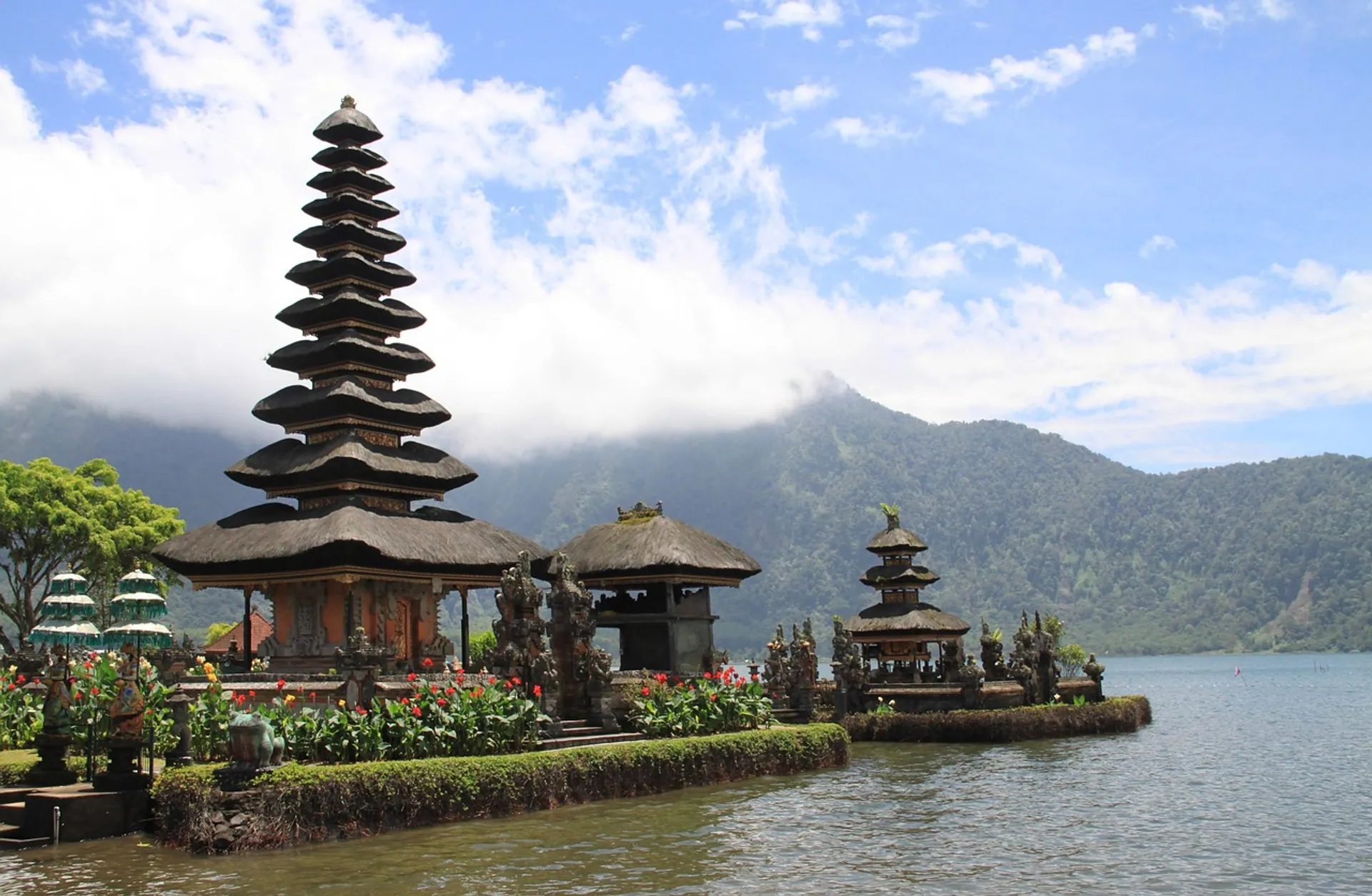
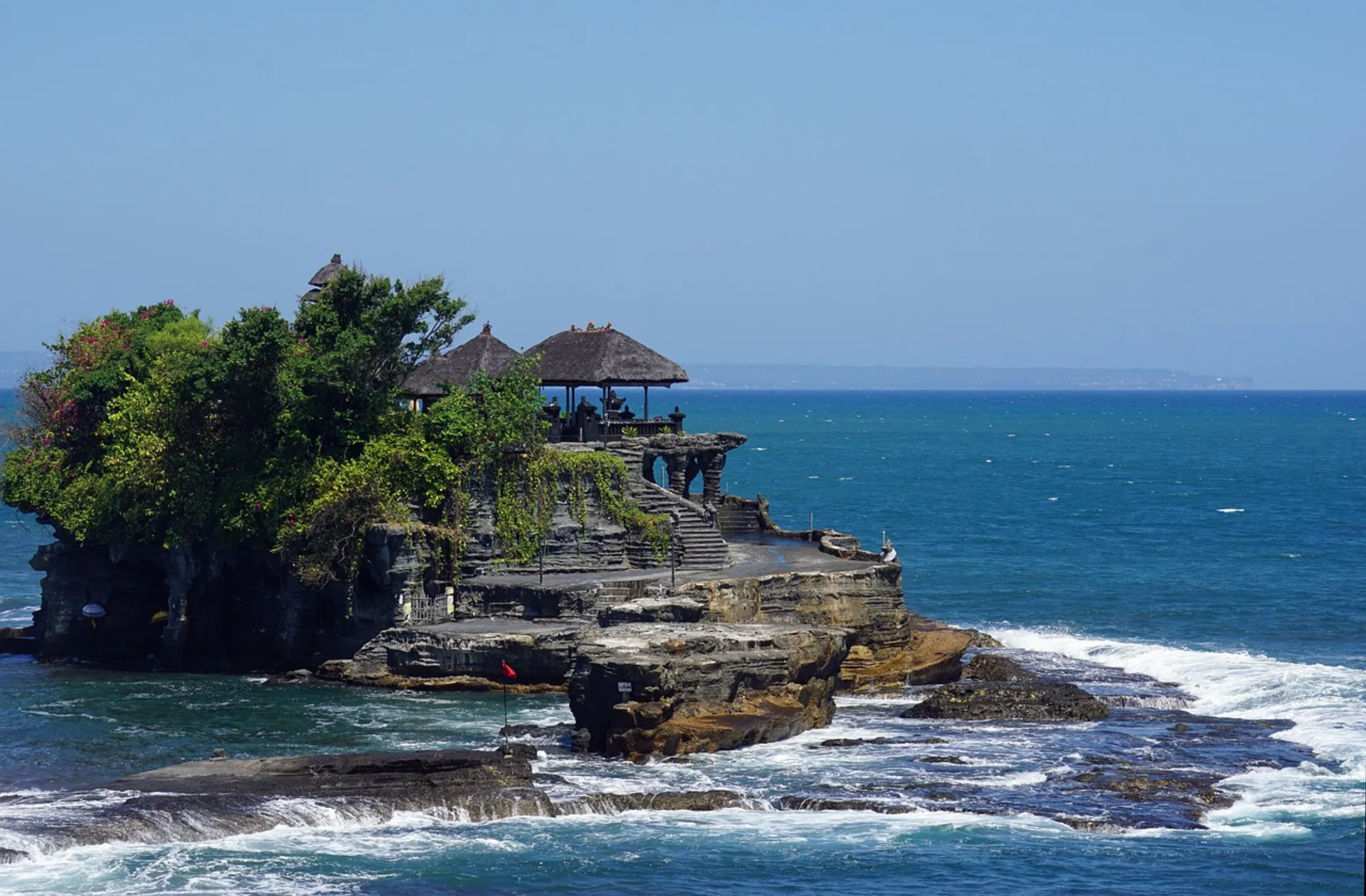



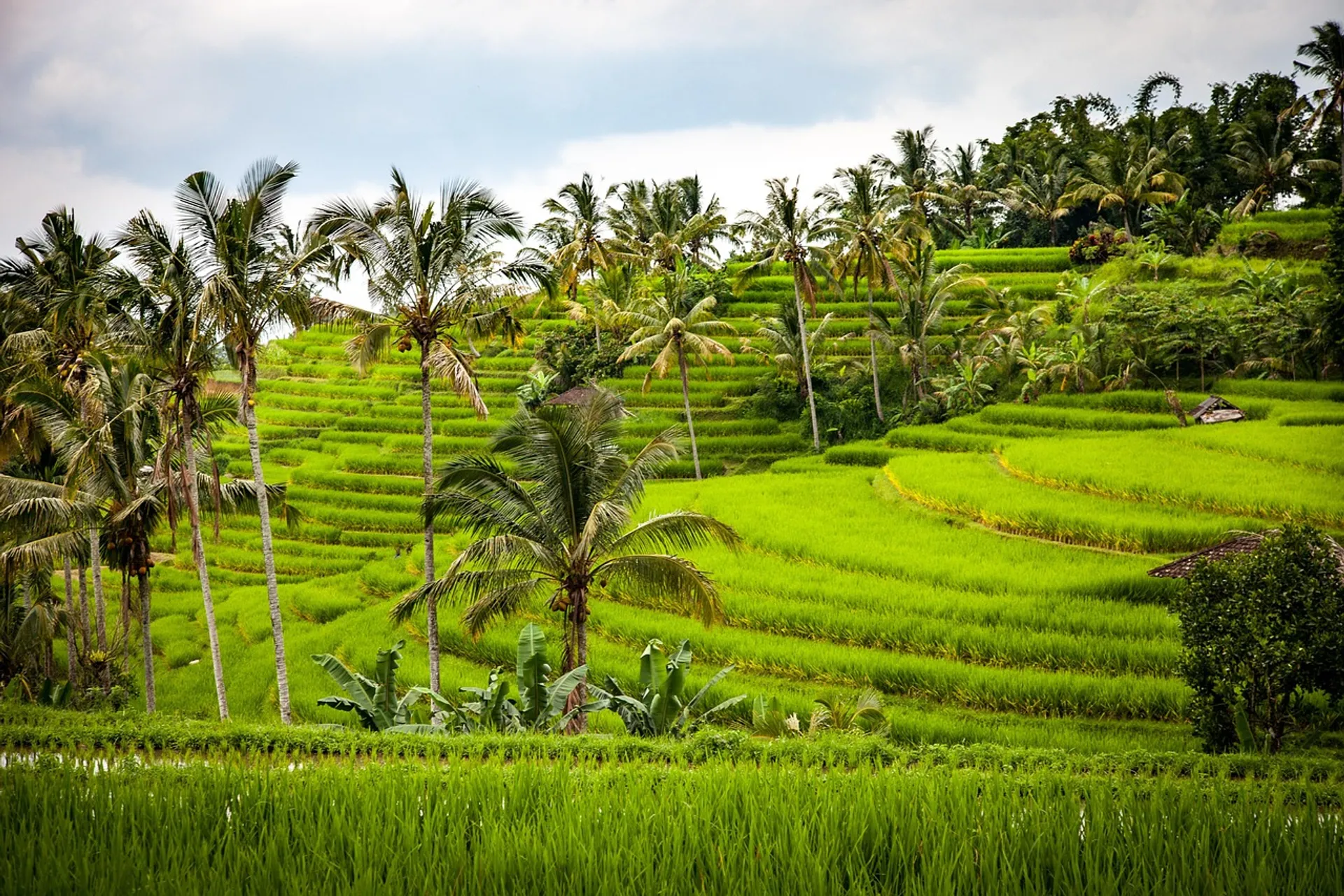
indonesia visa for brazilian
Select Visa Type
30 Days single Entry
Tourist e-Visa
single Entry
Validity 60 Days
Stay 30 Days
Get on
18 Sep 2025
indonesia Visa Requirements
Photo
Passport
How indonesia Visa Process Works
Step 1: Apply with MyVisitVisa
fill details & upload required documents via MyVisitVisa.
Step 2: Documents Verification
Your documents will Verified by our advisor. We will contact you if any further information required.
Step 3: Your Visa Gets Processed
eVisa Process
- We will submit your documents to the immigration department.
Embassy visa Process
- visa advisor will be assigned to your Application and assist with your Application and appointment booking.
- Attend visa appointment.
- Submit visa appointment to the immigration.
Step 4: Get Your Approved Visa on
You will receive an email notification of your visa approval and you can download from your MyVisitVisa account.
Reviews & Ratings
4.5/5
Based on 19 reviews
5
100%
4
0%
3
0%
2
0%
1
0%
On Time
Easy
Fast
Reliable
TrustWorthy
Cherrice Blizzard
australia
Immigration site had crashed
I had read on FB that the immigration site had crashed and there were continual issues when i wanted to do my 60 visa. I contacted Visa Centre Au and they processed my visa, no stress, no issues, simple process. I was even able to ring them to discuss my concerns. Thank you Visa Centre Au 🙏 😊

Amisha Dahal
australia
Got visa within a week
Got visa within a week. Very helpful. I will definitely recommend to others as well.

Prashansha Karki
australia
Fast and easy service
Fast and easy service, got a visa in couple of hours. Highly recommended!!

Soney S
australia
Reliable and great service
Very satisfied with the customer service provided recently as the visa was granted within a week. Highly recommended visa service centre if you looking for a professional, trustworthy, reliable, and responsive provider, who helps with your processing overall and clears all your queries with quick responses and great support👍Thankful to Mr Prem, you have been a great help.

Sujan Khatri
nepal
Great staff and easy process
Had a great experience with Visa Centre AU, the process was easier and the team was very responsive and giving me update on each part of the application. Love the service.

Sujan Paudel
australia
Thanks so much to Visa centre Au team…
Thanks so much to Visa centre Au team for all the help. Applying visa from them was really easy and they helped me every step of the way guiding me. My overall experience with the team was amazing and i highly recommend working with them.

Sunita Maharjan
nepal
Easily approachable and very reliable.
Easily approachable and very reliable.

Osama Ahmed Khan
pakistan
Very professional
Very professional Applied visa on 19th and received a day after on 21th Well satisfied 🥰🥰
Alina Chauhan
australia
Very helpful and professional team
Very helpful and professional team. Highly recommended.
Madhu Limbu
australia
Friendly and Convenient
Friendly support. All we had to do was provide the pics of our documents. Very convenient

Nishant Shrestha
nepal
Very Professional
Thank u so much visa centre AU for being so much helpful n understanding in every step of our visa process for thailand. I m very much pleased with ur effort and service. I am very much happy from ur service n Il be recommending my friends n family for choosing ur center. Thank u😍😊😊

Hawraa S
australia
I was in a tight situation but with…
I was in a tight situation but with visa centre he made my life easier Best team I've worked with Deserved the 5 stars

Roshani Thapa
australia
I want to thank visa centre Au for…
I want to thank visa centre Au for exceptional performance for solving visa issues . Greatly appreciate what you have done for me . I am grateful for ur valuable advice .most important is thank you for supporting us during crisis situations. Truly grateful for valuable service and emotional support.

kamal maharan
australia
Thank you for making my life easy
Thank you for making my life easy. As promised Bali visa in 2 days. Best in the business. Very much genuine, they are there to help people and make our life easy while traveling...really great service...once again thank you guys so so much.

Sunny Shrestha
australia
Visa granted in 4 days
I recently applied for a Japan visa through the Visa Centre, and I’m very pleased with the experience. The process was smooth, efficient, and professionally handled. My visa was granted without any issues. Highly recommend their service!

Manik Guragain
thailand
I booked a longtail boat to Phi Phi
I booked a longtail boat to Phi Phi Island through Visa Centre AU, and honestly, it was one of the best decisions I made on my trip. The entire experience—from booking to the actual tour—was smooth and hassle-free. The water was crystal clear, the views were straight out of a postcard, and the peaceful ride on the longtail boat made it feel like a private escape to paradise. Big thanks to the team for their quick response and friendly service. They made everything so easy. If you’re planning a trip to Thailand and want something truly special, I highly recommend booking through them. I’ll 100% be reaching out again for my next adventure. Don’t miss this—it’s worth every cent!
indonesia Visa Rejection Reasons
Factors than can get your visa rejected
Expired Passport
Applying with a passport that has expired or expires within 6 months.
Insufficient Funds
Failing to demonstrate enough financial resources to support your stay.
Criminal Record
Having a criminal history that disqualifies you from obtaining a visa.
Previous Visa Violations
Having overstayed or violated the terms of a previous visa.
Frequently Asked Questions

Things to do after receiving your Bali Visa and before heading to Airport
Receiving Bali visa is not enough for you to travel to Bali there are few other things that you need to consider before travelling to Bali. This guide will take you through the things that you need to take care before travelling to Bali.
The Arrival and Logistics Guide to Bali
Immigration and Customs: A Step-by-Step Guide for Denpasar Airport (DPS)
The arrival process at I Gusti Ngurah Rai International Airport (DPS) has been streamlined with the introduction of the new "All Indonesia" arrival card. As of September 1, this new digital platform is mandatory for all international passengers arriving at major Indonesian airports, including Denpasar. This application or online form serves as a unified digital declaration, consolidating immigration, customs, health, and quarantine declarations into a single submission. This new system replaces previous separate requirements like the SATUSEHAT health pass and the Electronic Customs Declaration (e-CD) form, which is a significant change designed to reduce paperwork and speed up entry procedures. The form can be completed free of charge up to three days before arrival via the official website, allindonesia.imigrasi.go.id, or the mobile app. A QR code is generated upon completion, which must be presented to immigration and customs officers.
Upon disembarking the aircraft, the arrival process unfolds in a clear sequence. First, travellers will pass through the health quarantine area. With the new "All Indonesia" card, the previously required SATUSEHAT health pass is no longer necessary; travellers simply need to have their QR code ready. Next, travellers will proceed to the immigration checkpoint. At this stage, they must present their valid passport, their visa or proof of visa-free status, and the QR code from the "All Indonesia" application. For travellers with an e-passport, there is an option to use the e-gates, which can further expedite the process.
After successfully completing the immigration process, the next step is baggage claim. Travellers should check the information screens to locate the correct conveyor belt for their flight. Trolley facilities are available, and for a small fee of 10,000 Rupiah per package, porters can assist with luggage. The final step before exiting the airport is the customs and excise process. Here, travellers will present the same QR code to customs officers. It is at this point that travellers must declare items such as plants, animals, or goods exceeding what is considered personal use. It is important to note that IMEI registration for mobile devices is not required for foreigners staying 90 days or less. Upon exiting customs, travellers will find themselves in the arrival corridor, where they can proceed to their pre-arranged transportation. It is highly advisable to pre-book a shuttle or a taxi to avoid the chaotic and often unregulated transport services that can try to take advantage of new arrivals.
Currency and Money Management: Cash, Cards, and Cautions
The official currency of Bali, and all of Indonesia, is the Indonesian Rupiah (IDR), which is often abbreviated as Rp. As of recent reporting, the exchange rate was approximately 16,472 Rupiah to one US dollar, though travellers should be aware that exchange rates can fluctuate.
When it comes to payment methods, Bali's economy operates with a dual system of cash and cards. Card payments, particularly with Visa and Mastercard, are widely accepted in tourist-heavy areas such as large hotels, restaurants, and shops. Some establishments in these areas may even accept contactless or mobile payments. However, cash remains an essential part of the Balinese economy. It is the primary form of payment for local markets, street food vendors, small local businesses, public transportation, and entry fees to temples. It is therefore highly recommended to carry a small amount of cash, perhaps the equivalent of 50 to 100 US dollars, for these incidental expenses.
When using ATMs, a few key practices can ensure safety and efficiency. It is a best practice to use ATMs located inside or attached to major bank branches like Mandiri, BNI, BCA, or BRI. These locations are typically monitored by CCTV and security guards, which significantly reduces the risk of card skimming or tampering. ATMs found in isolated areas, convenience stores, or at small, older-looking booths should be avoided. Most ATMs in Bali have a relatively low withdrawal limit, typically ranging from 1,250,000 to 2,500,000 Rupiah. It is possible to make multiple withdrawals to obtain a larger sum.
A critical tip for using ATMs is to always select the option to be charged in the local currency (IDR) when prompted. Choosing to be charged in your home currency will result in a poor exchange rate set by the local ATM network, leading to unnecessary fees. It is also important to note the order of operation at Balinese ATMs, as it can be different from Western ones. Many machines will dispense the cash first, followed by the card, so travellers must be patient and remember to retrieve their card after the transaction is complete.
Getting Around Bali: Choosing Your Ride
Bali offers a variety of transportation options, from app-based ride services to traditional taxis and private rentals. The most popular and convenient choices for visitors are the ride-hailing apps Grab and Gojek. These applications have established themselves as the dominant force in local transportation due to their transparent pricing and cashless payment options, which help travellers avoid the risk of being overcharged. Both platforms offer car and motorbike taxi services, known as GrabCar/GoCar and GrabBike/GoRide, respectively. For short trips or navigating heavy traffic, the motorbike option is often faster and more affordable. The pricing for these services is dynamic and can vary significantly between the two apps, which means it is often beneficial for travellers to check both platforms for the best rate before booking.
For those who prefer a traditional taxi, the most reputable and reliable company is Blue Bird. Blue Bird taxis are metered, which ensures that the fare is based on the official government-set rates. The current official base fee is 7,500 Rupiah, with a cost per kilometre of 7,250 Rupiah, and an additional fee for waiting time. Travellers should be cautious of unofficial taxis, which may attempt to overcharge by not using a meter or by negotiating an unfair price.
A significant number of travellers choose to rent a scooter for the freedom it provides to explore the island at their own pace. Scooter rentals are inexpensive, with daily rates ranging from 50,000 to 100,000 Rupiah. However, travellers should be aware that an International Driving Permit is required, and authorities have become stricter about enforcing this rule. For groups or families, renting a car with a driver is a popular and safer option than self-driving, as it offers comfort and allows visitors to avoid navigating Bali's often-chaotic traffic.
A Guide to a healthy and prepared trip
Health and Safety Preparation: Proactive Measures for a Healthy Trip
Proper health and safety preparation are paramount for a trip to Bali. A consultation with a travel health professional is recommended well in advance to ensure all routine vaccinations, such as for tetanus and diphtheria, are up to date. Travellers should also consider additional vaccines, particularly for Hepatitis A, Hepatitis B, Typhoid, Rabies, and Japanese Encephalitis. These are advisable to protect against common risks in the region, including food and waterborne diseases, animal contact, and mosquito-borne illnesses, especially when visiting rural areas or staying for an extended period.
A comprehensive first-aid kit is another essential item to pack. This kit should contain any essential personal medications, as well as basics like a diarrhoea treatment kit, bandages, paracetamol, and ibuprofen. Given Bali's tropical environment, a high-SPF, waterproof sunscreen and mosquito repellent containing DEET are indispensable. Bringing a mosquito repellent plug for accommodations can also help prevent insect-related discomfort.
A particularly crucial and often overlooked aspect of travel preparation is the legal status of prescription medications. Some medications, including those for ADHD and all cannabis-based products (even medicinal), are illegal in Indonesia, and penalties can be severe, including jail time. Travellers should not assume that because a medication is legally prescribed in their home country, it is permissible in Indonesia. The legal framework is different, and this can have serious repercussions. It is a prudent measure to check the legality of any medication with an Indonesian embassy or consulate before departure.
Finally, the importance of comprehensive travel insurance cannot be overstated. A robust policy should cover medical treatment and, critically, emergency medical evacuation, which can be prohibitively expensive without coverage. Travellers engaging in activities like bungee jumping, rafting, or scuba diving should also carefully review their policy to ensure these adventure sports are covered. This proactive approach to health and safety is a fundamental pillar of a secure and enjoyable journey.
The Ultimate Bali Packing List: Beyond the Beachwear
Packing for Bali's tropical climate requires a balance of practicality and cultural sensitivity. The year-round warm and humid weather calls for light, loose, and breathable clothing made from materials like cotton. A hooded sweatshirt or light jacket is useful for cooler evenings or excursions to inland, mountainous areas like Ubud or Gunung Batur. While the standard of dress in tourist areas is casual, a light rain jacket is a practical item to have on hand, especially during the wet season from October to March.
Footwear should be chosen for comfort and versatility. Comfortable sandals or flip-flops are perfect for the walkable tourist centres and a necessity for beach days. Shoes that are easy to slip on and off are a smart choice, as it is customary to remove shoes before entering homes and some temples. For more adventurous activities such as hiking or exploring slippery paths, a pair of enclosed shoes like trainers or hiking boots is recommended.
Beyond clothing, a few key items should be on every traveller's list. A fully unlocked smartphone is essential for using a local SIM card, which provides access to data for navigation and ride-hailing apps. A universal travel plug adapter and a power bank are also vital for keeping devices charged. A dry bag or a waterproof phone case is highly useful for protecting electronics from the frequent rain or water-based activities.
A critical consideration for an efficient packing strategy is to travel light and leverage local services. Laundry services in Bali are inexpensive and widely available at hotels and local laundries, so there is no need to pack a large number of clothes. Furthermore, many items can be easily and affordably purchased on the island. Items such as swimwear, hats, sunglasses, and sandals are plentiful in local markets and shops. Conversely, there are certain items that should be left at home. Expensive jewellery should be avoided to prevent loss or theft. It is a serious legal offence to bring in items such as weapons, pepper spray, or, most critically, drugs, which can carry the death penalty in Indonesia. Travellers planning to snorkel should also leave their gear behind, as it can be easily and inexpensively rented or purchased in Bali.
Cultural Immersion and Practical Know-How
A Guide to Local Customs and Etiquette: Respectful Travel
Engaging with Balinese culture requires a deep sense of respect and an understanding of local customs. The Balinese are generally tolerant and welcoming, but in response to some recent tourist behaviour, the government has issued an official list of do's and don'ts that travellers must adhere to.
In day-to-day interactions, a few gestures are particularly important. It is customary to use the right hand for giving and receiving money or gifts, as the left hand is considered impure. Pointing with a finger is considered rude; instead, one should beckon someone with a hand extended, fingers pointing downward. The head is considered the most sacred part of the body, and touching someone's head, even a child's, is a serious social transgression that can lead to a confrontation. It is also considered impolite to lose one's temper, as the Balinese value a calm and polite demeanour.
When visiting temples and sacred sites, a strict dress code must be followed. Both men and women are required to cover their shoulders and legs, typically with a sarong and a sash, which are often available for rent at the temple entrance. It is also disrespectful to step on the small daily offerings (canang sari) that are placed on pavements and in front of homes. The Governor's official list of guidelines explicitly states that visitors must respect temples and sacred structures, and for women, this includes a specific rule not to enter sacred areas while menstruating. Photography is generally permitted, but flash photography inside sacred places is considered rude and should be avoided.
Staying Safe and Healthy in Bali
A key component of a successful trip is prioritising health and safety by taking proactive steps to mitigate common risks. One of the most prevalent health issues for visitors is "Bali Belly," a colloquial term for traveller's diarrhoea. The best way to prevent this is to be cautious with food and water. It is unsafe to drink tap water in Bali, so only bottled or filtered water should be consumed, even for brushing teeth. When eating street food, it is a prudent practice to choose vendors who prepare the food fresh in front of you.
A more severe and potentially fatal risk is methanol poisoning, which has been reported in Bali and Lombok. Unregulated alcoholic beverages, particularly cocktails and homemade spirits, can be contaminated with methanol. As little as a single shot can be fatal, and a delay in seeking medical attention can lead to permanent disability or death. It is critical to be cautious with alcoholic drinks and to only consume them at reputable, licensed establishments. If methanol poisoning is suspected, urgent medical attention is required.
Travellers should also be mindful of the natural environment. The sun can be intense, so wearing a hat and high-SPF sunscreen is essential, as is staying well-hydrated. When encountering wildlife, caution is advised. Both stray dogs and monkeys can carry diseases like rabies. In areas like the Ubud Monkey Forest, monkeys can be aggressive, so it is important not to feed them or provoke them, and to keep belongings secured. Marine safety is another serious concern. Many beaches are unpatrolled and have strong rip currents that have been responsible for drownings. Swimming should only be done in designated areas.
For travellers who plan to use a drone, it is important to be aware of the specific regulations. For recreational purposes, a licence is not required, but strict rules apply. Drones should not be flown above 150 metres, within 15 kilometres of an airport, or over crowds. From a cultural standpoint, flying a drone over temples is strictly forbidden without prior permission from temple authorities, which may require a donation. Respect for cultural and religious sites is a key part of avoiding legal and social problems.
Key Emergency Contacts
For a comprehensive approach to safety, it is prudent to have a list of emergency contacts readily available.
| Service | Phone Number |
| Police | 110 |
| Ambulance | 118 |
| Tourist Police | 0361 224111 |
| Medical Emergency | 0361 711366 |
Best Places to Visit in Bali
Bali is a destination of remarkable diversity, offering an extensive range of attractions that cater to every interest.
Temples and Spiritual Sites
- Pura Ulun Danu Beratan: Located in the Bedugul highlands, this iconic temple appears to float on the waters of Bali's second-largest lake. The serene landscape, with Mount Catur and Mount Beratan in the background, is so beloved it is featured on the Indonesian 50,000 Rupiah bill.
- Pura Lempuyang: Known as the "Gateway to Heaven," this ancient temple is perched atop Mount Lempuyang. The climb to the top involves 1,700 steps, but the literal gateway at the summit provides a stunning and famous photo opportunity.
- Pura Tirta Empul: A sacred water temple famous for its holy springs. Visitors can participate in the melukat, a traditional water purification ceremony.
- Pura Uluwatu: This temple is majestically perched on a cliff 70 metres above the Indian Ocean. It is a premier location to watch the sunset and witness the traditional Kecak fire dance, performed in the temple's amphitheatre.
- Goa Gajah: Also known as the “Elephant Cave,” this ancient man-made cave was used as a ritual site. The entrance is a stone carving resembling an elephant, and visitors can explore its inner chamber.
Natural Wonders and Adventure
- Gunung Batur: An active volcano and one of Bali's most popular hiking destinations. The pre-dawn trek takes 2 to 3 hours to reach the summit in time for a breathtaking sunrise.
- Tegalalang Rice Terraces: This location near Ubud is a must-visit for its stunning landscape of vibrant rice paddies. Visiting at sunrise offers the best light for photography and helps avoid crowds.
- Jatiluwih Rice Terraces: Located in the Tabanan region, this area showcases Bali's ancient and UNESCO-recognised subak irrigation system. Visitors can walk or cycle along the terraces and interact with local farmers.
- Tegenungan Waterfall: Situated in Gianyar, this is the waterfall closest to the main tourist areas of Kuta and Seminyak. A 30-minute drive from Denpasar, it is easily accessible.
- Kanto Lampo Waterfall: Found in the Gianyar rainforest, this waterfall is recognised for its unique, stepped rock formation, which creates a mesmerising cascade effect.
- Marigold Fields in Besakih: The region of Besakih, located north of Denpasar, is home to sprawling fields of marigolds (bunga gemitir) used in daily Balinese Hindu offerings. The fields provide a perfect backdrop for photographs.
Beaches, Islands, and Coastal Life
- Nusa Islands: A group of three stunning islands - Nusa Penida, Nusa Ceningan, and Nusa Lembongan - located a short boat ride from Bali. Nusa Penida is particularly popular for snorkelling with manta rays and visiting the iconic Kelingking Beach.
- Lovina: A small town on the northern coast, known for its black sand beaches and the opportunity to take a boat tour to see pods of dolphins at sunrise.
- Suluban Beach: Part of the Uluwatu region, this beach is globally renowned for its surf break and attracts surfers from around the world. It is also a popular nightlife spot, with the Single Fin bar located just above.
- Melasti Beach: Also in Uluwatu, this beach is known for its beautiful turquoise waters and safe swimming conditions, framed by dramatic limestone cliffs. It is a great spot for watching the sunset.
- Green Bowl Beach: A secluded and quiet beach in Ungasan, this is one of Bali's shortest beaches, featuring a large limestone cave for shade. It requires a descent of hundreds of steps to reach.
Cultural Hubs and Nightlife
- Ubud: Considered the cultural heartland of Bali, Ubud is a hub for yoga, art, and landscapes. It is an excellent place for those interested in local culture, art, and beautiful scenery.
- Ubud Art Market: Located on the main road, this market is a treasure trove of local crafts and souvenirs. Visitors can find a wide range of traditional items, from hand-carved goods to rattan bags and handwoven fabrics.
- Desa Penglipuran: Located in the Bangli region, this village was named the world's cleanest village by UNESCO in 2016. For a small fee, visitors can experience the traditional Balinese way of life.
- Garuda Wisnu Kencana Cultural Park: This park features the magnificent Garuda Wisnu Kencana statue, one of the world's tallest monuments at 121 metres. The park offers an opportunity to explore Balinese art and culture, and a lift takes visitors to the 23rd floor for panoramic views of the Uluwatu peninsula.
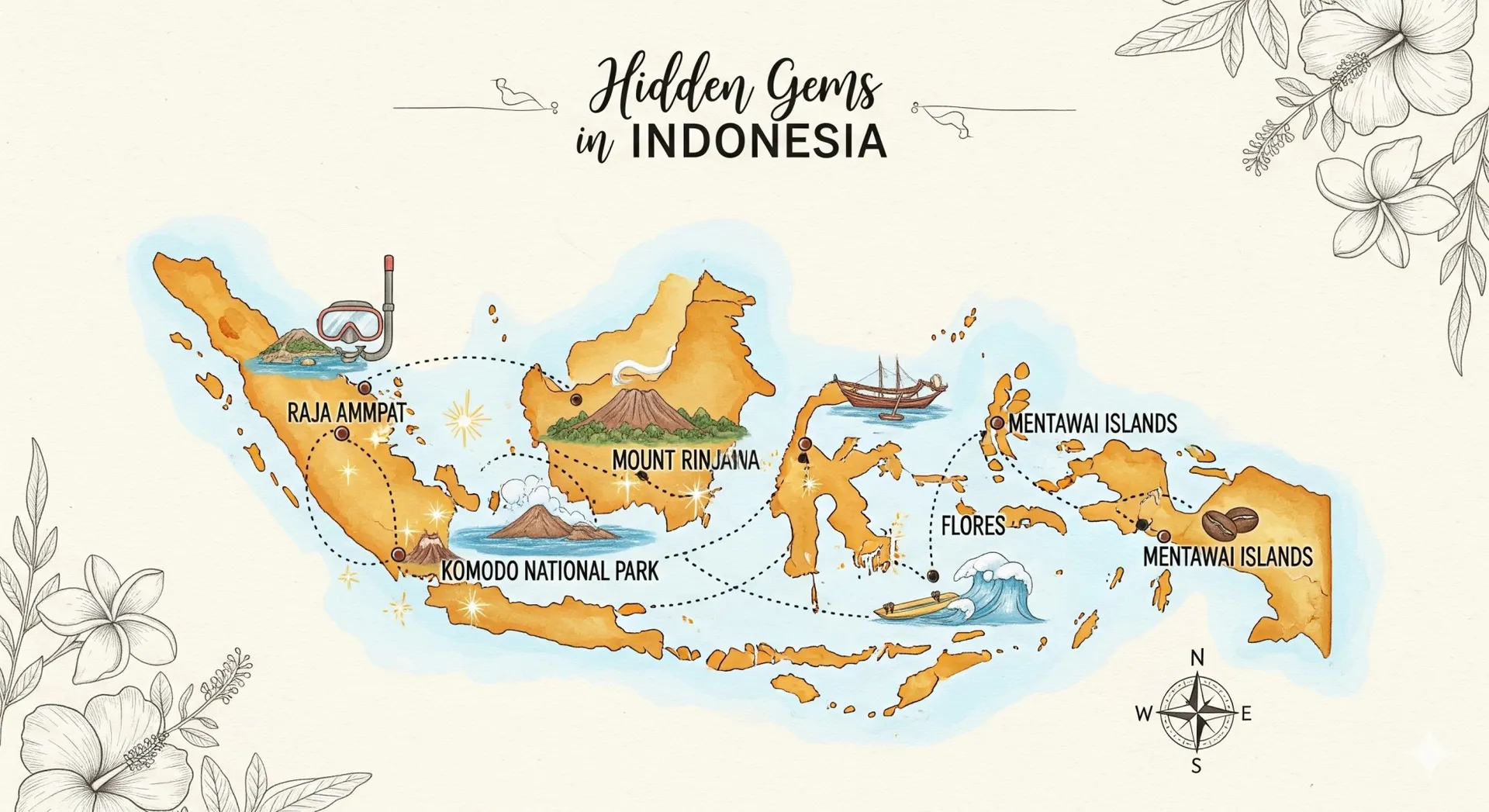
Beyond Bali: Your Passport to Indonesia's Hidden Gems
So, you've heard all about Bali, but what if I told you that Indonesia, a country of over 17,500 islands, has so much more to offer? If you're the kind of traveler who craves authentic cultural encounters, untamed natural beauty, and a deeper connection to a place, then it’s time to look beyond the well-trodden paths. This is your guide to five incredible regions that offer a truly unforgettable adventure.
Forget about a simple list of destinations. We're going to dive deep into each region, giving you a full breakdown of what to expect, from daily costs to crucial travel tips. These places might not have the same level of tourist infrastructure as Bali, but that's a huge part of their charm. Logistics can be a little more complex, and a clear understanding of local customs and financial realities is essential, but trust me, the journey is worth it. This guide is all about empowering you to travel with confidence and respect, ensuring a trip that's as enriching as it is responsible.
The Flores & Komodo Archipelago: Land of Dragons and Living Coral
If you're an adventurer at heart, you simply have to visit the Flores & Komodo archipelago. This is where you'll find a wild, beautiful mix of prehistoric wildlife and some of the world's most incredible marine ecosystems. The adventure begins in Labuan Bajo, a lively town on Flores Island that's just a short flight from Bali.
The Komodo National Park Experience
The main event here is undoubtedly the Komodo National Park, a UNESCO World Heritage Site with biodiversity that will blow your mind, both on land and in the water. Most people experience the park through a multi-stop tour, and there are a few iconic sights you can’t miss.
First up is Padar Island, a challenging but rewarding hike that leads to a breathtaking panoramic view of three distinct bays, each with a different colored shoreline. Just be sure to wear sturdy hiking shoes and bring sun protection!
Next, you'll head to Komodo Island, the fabled home of the Komodo dragon. These magnificent creatures are the world's largest lizards and can grow up to 8 feet long. They're wild and unpredictable, so you'll stay with a park ranger at all times, sticking to designated paths and keeping a safe distance. The rangers, armed with a safety stick, are an essential part of the experience, ensuring everyone stays safe. For an interesting and important tip, women who are menstruating should inform their guides, as the dragons are said to be sensitive to the smell of blood.
The tour often includes a stop at Pink Beach, a stunning spot where the soft, rose-colored sand gets its hue from crushed red coral fragments. The clear waters here are perfect for snorkeling, and if you’re heading into the water, remember to use a reef-safe sunscreen to protect the fragile coral. Finally, Manta Point is a must-visit for divers and snorkelers, offering the chance to swim alongside majestic manta rays.
Practicalities & Insider Insights
It’s important to understand the costs, as they can be a bit confusing. The Komodo National Park has a variable entrance fee that's higher on Sundays and public holidays. Beyond this, each island and activity has its own separate entrance and ranger fee. Tour packages vary widely a one-day group tour can be around $95 USD, while a three-day, two-night liveaboard cruise starts at about $380 USD. These liveaboard options are a fantastic value, allowing divers to spend an extended period exploring the park’s marine wonders. For those with a more generous budget, you can even find luxury yacht voyages.
In addition to the financial details, health and safety are a top priority. The tropical climate of Flores means you need to stay hydrated and use sun protection, especially during treks. It’s also a good idea to consult a travel doctor about necessary vaccinations, such as for malaria. Be aware of common marine dangers like strong rip currents and always choose a reputable tour operator.
Adventures on Flores Island (Beyond the Park)
Flores is a destination in its own right, with unique natural and cultural attractions. The Kelimutu Volcanic Lakes are a must-see, with three crater lakes that mysteriously change colors due to chemical reactions from volcanic gases. Catching the sunrise here is a truly mystical experience. Another unique sight is the Spider Web Rice Fields at Cancar Village, where circular, terraced rice paddies form a visually striking web-like pattern.
| Category | Typical Cost Range | Notes |
| One-Day Group Tour | $95–$120 USD | Includes multi-stop itinerary, boat, and lunch. |
| 3D/2N Liveaboard | $380–$450+ USD | An excellent value for divers and multi-day explorers. |
| Park Entry Fee | $10 (weekday) – $18 (weekend) USD | Per person, separate from tour costs. |
| Drone Permit | $122 USD/day | A costly but necessary permit for aerial photography. |
Lombok: Bali’s Quieter, More Rugged Sister
Lombok is often called a more secluded, rugged version of Bali, and it’s said to have a vibe similar to Bali from 15 years ago. It's the perfect spot for those who want stunning natural beauty and a laid-back atmosphere without the massive crowds. While Kuta, Lombok, is becoming a popular tourist hub, the rest of the island remains wonderfully authentic.
Adventures for Every Traveler
The centerpiece of a trip to Lombok is the trek up Mount Rinjani, the second-highest volcano in Indonesia. It's a tough but rewarding multi-day excursion that takes you to the crater rim and hot springs. Just a heads up, the trek is typically closed from January to March during the rainy season for safety.
Lombok’s coastline is a paradise for surfers of all levels. If you’re a beginner, you can rent a board and take lessons at Selong Belanak beach. More experienced surfers can ride the legendary long, hollow waves at Desert Point. If surfing isn't your thing, you can spend your days beach hopping along the south coast. Tanjung Aan Beach, with its shell-shaped cove, is a local favorite, and the remote Tangsi "Pink" Beach is a spectacle to behold.
For a dose of culture, visit traditional Sasak villages like Sade and Sukarara to see traditional weaving and learn about local customs. You can also see the Pura Narmada water temple or spot wild macaques at Baun Pusak.
Lombok vs. Bali: A Financial Reality Check & Practicalities
One of the best things about choosing Lombok is that it's significantly more affordable than Bali. A one-bedroom apartment in Lombok's city center can cost between $200 and $300 per month, while a similar place in Bali would be $400 to $600. The cost of daily essentials is also lower, with local meals costing as little as $1.50 to $5. This makes Lombok an ideal place for budget travelers looking to stay a while.
When it comes to cultural etiquette, Lombok is a Muslim-majority island, and respect is key. This means dressing modestly, especially when visiting religious sites. Always use your right hand to give or receive things, as the left is considered unclean. Public displays of affection are not common and should be avoided.
Be mindful of common scams and health risks. It's wise to only buy alcohol from reputable, licensed establishments to avoid the risk of drink spiking and methanol poisoning. Watch out for dishonest taxi drivers who won’t use meters and money changers who try to shortchange you. A calm, polite demeanor will help you navigate these situations smoothly.
| Category | Lombok (USD) | Bali (USD) |
| Housing (Villa) | $300–$1,000 | $500–$2,000+ |
| Food (Local) | $1.50–$5 | $2–$7 |
| Groceries | $100–$150 | $150–$200 |
| Scooter Rental | $50–$70 | $60–$80 |
Raja Ampat: The Ultimate Eco-Adventure
Raja Ampat is one of those rare places where the phrase “heaven on earth” feels appropriate. Located in the Coral Triangle, this region has the highest marine biodiversity in the world, with over 500 species of coral and a vibrant tapestry of marine life. It's a diver’s and nature lover’s paradise.
Beyond the Water
While diving and snorkeling are the main draws, Raja Ampat’s magic isn’t just underwater. On land, iconic viewpoints like Piaynemo and Wayag offer breathtaking vistas of lush, green limestone islands scattered across a clear blue ocean. The hike to these spots is worth every step!
For birdwatchers, the islands are home to several endemic species, including the magnificent Birds of Paradise. Waking up early to watch the elaborate mating rituals of the Wilson's and Red Birds of Paradise is an unforgettable experience. Other non-diving activities include exploring the Kali Biru (Blue River), kayaking through hidden bays, visiting a pearl farm, and swimming with jellyfish in a secluded lake.
The Reality of a High-End Destination & Practicalities
Let's be real - a trip to Raja Ampat is a significant financial commitment. The costs are high, but they directly reflect the destination's remoteness and the intense preservation efforts to keep it pristine. This also means you'll have a more exclusive and less crowded experience, which is part of the appeal.
Most of your budget will go to local boat hire, as it’s the only way to get around the islands. A single boat trip can cost around $88 USD, so it’s a good idea to find other travelers to share the cost. There's also a mandatory Marine Park Entry Tag that costs about $100 USD for international visitors, which helps fund conservation.
Accommodation options range from high-end resorts, starting at $110 to $165 per person per night, to more rustic but beautiful homestays, which average $39 to $55 per person. Keep in mind that most accommodations are priced per person because they're all-inclusive, covering your meals. A crucial tip: bring plenty of cash, as ATMs in the main entry points of Sorong and Waisai are unreliable.
For a smooth and respectful visit, remember that the region has a Christian-majority population, so Sundays are a day of rest. This means no boat tours or activities will be available. When resolving any issues, stay calm and respectful, as a loud or aggressive approach will not work here. Lastly, dress modestly, especially when visiting villages, as it can be offensive to locals to see travelers in swimwear or revealing attire.
| Category | Typical Cost (Per Person) | Notes |
| Daily Homestay | $39–$55 USD | Includes all meals and basic amenities. |
| Marine Park Tag | $100 USD | Mandatory one-time fee for international visitors. |
| One-Day Boat Hire | ~$88 USD (per boat) | Best shared with other travelers. |
| Single Dive | $44–$55 USD | Packages are available for multiple dives. |
| Drone Permit | $122 USD/day | A costly, but required, permit for aerial footage. |
Yogyakarta & Central Java: The Heart of Javanese Culture
Yogyakarta is often called the "heart and soul of Java," and it’s a vibrant city brimming with history, art, and culture. It's the perfect base for exploring some of Indonesia’s most significant cultural landmarks. If you're looking for a deep dive into Javanese traditions and ancient wonders, this is the place for you.
A Journey Through Time: The Great Temples
The region is famous for its two UNESCO-listed temples, Borobudur and Prambanan, which are considered among the greatest Buddhist and Hindu monuments in the world. Borobudur is a massive ninth-century Buddhist complex that is truly awe-inspiring. The ideal time to visit is at sunrise, when the temple is shrouded in a mystical mist.
Prambanan, a complex of Hindu temples, is equally stunning with its intricate carvings and towering spires. It’s best to visit at sunset when the golden light bathes the stone structures in a warm glow. While you could technically visit both in one day, it’s a long, rushed journey. I'd recommend splitting them into two separate days to truly appreciate their unique grandeur.
The City of Artists and Students
Yogyakarta itself is a hub of creativity and tradition. The city is home to historical landmarks like Kraton, the Royal Palace, and Taman Sari, the Water Castle, which offer a glimpse into the lives of the Javanese sultans. The main street, Jalan Malioboro, is a bustling center for shopping and street food, famous for its authentic batik fabrics. Make sure to try the local delicacy, Gudeg, a traditional jackfruit stew. At night, the city comes alive with cultural activities like the nightly Ramayana Ballet and the quirky "Bling Bling" car rides at Alun-Alun Selatan.
Adrenaline on Java
If you're looking for adventure, Central Java has plenty to offer. The Merapi Lava Tour takes visitors on an exhilarating jeep ride around Mount Merapi, Indonesia's most active volcano. Another unique experience is a trip to Jomblang Cave, where a challenging descent leads to a breathtaking sight: a stunning beam of light that streams into the cavern, creating a "heavenly" atmosphere.
Backpacker vs. Mid-Range Budget & Practicalities
Yogyakarta is an exceptionally budget-friendly destination. Daily travel costs are much lower than in Bali, with a local meal costing as little as $1.13 and a public transport ticket just $0.26. Private car rentals are also affordable at around $13 a day, though hiring a driver is often a safer option given local driving conditions.
Be aware of common scams, particularly those involving taxis and money exchange. It’s smart to use reputable ride-hailing apps like Grab or to insist on a taxi meter. When exchanging currency, stick to banks or certified money changers with a Bank of Indonesia logo to avoid being shortchanged.
| Category | Backpacker Daily Budget | Mid-Range Daily Budget |
| Accommodation | $10–$20 | $20–$50 |
| Food & Drink | $5–$15 | $15–$30 |
| Activities | $15–$30 | $30–$60 |
| Transportation | $3–$10 | $10–$25 |
| Daily Total (Approx.) | $33–$75 USD | $75–$165 USD |
The Wild Frontiers of Sumatra: A Naturalist's Dream
For the truly intrepid traveler, Sumatra offers a journey into Indonesia's wild, untamed heart. The island is a naturalist’s dream, a place where the jungle reigns supreme and opportunities for wildlife encounters are everywhere.
Jungle Trekking in Bukit Lawang
Bukit Lawang is your gateway to the Gunung Leuser National Park, one of the last remaining strongholds for the critically endangered Sumatran orangutan. The main activity here is jungle trekking, with a high chance of spotting these magnificent creatures in their natural habitat. Treks range from a single day to multi-day excursions with overnight stays in the rainforest. A one-day trek can cost around $46 USD, while a three-day, two-night trip is approximately $180.
It is absolutely essential to hire a local guide for any jungle trek, as it’s illegal and highly dangerous to enter the national park without one. This practice also directly supports the local community, which provides a powerful incentive for the protection of the orangutan habitat.
Beyond orangutan spotting, you can go river tubing down the Bohorok River and take immersive cooking classes to learn traditional Indonesian dishes. A few practical things to know: there are no ATMs in Bukit Lawang, and the four-hour drive from Medan Airport can be rough due to road conditions.
The Coastal Escape of Weh Island
For a completely different vibe, head to Weh Island (Pulau Sabang), located at Indonesia’s northern tip. This mixed-culture island is a unique destination with incredibly friendly locals and pristine coastal views. A popular activity is renting a motorbike to explore its three main beaches and a "Kilometer Zero" point.
Crucial Safety and Health Notes for the Wild Frontiers
Traveling in Sumatra's rainforest requires specific health and safety precautions. Leeches are common, so wearing long sleeves and long pants tucked into socks can help prevent bites. While they don't carry diseases, it's still a good precaution. It’s also highly recommended to have travel insurance, as the rugged terrain can lead to injuries. The region is considered a malaria-risk area, so you should consult a doctor to see if prophylaxis is necessary.
Crafting Your Own Indonesian Adventure
Your journey beyond Bali will reveal an Indonesia of astonishing diversity. By leaving the well-known path, you can discover authentic experiences, support local communities, and create memories that are truly unique.
For the active adventurer who loves a challenge and unparalleled natural wonders, the rugged landscapes of Flores & Komodo or the dense jungles of Sumatra are the ultimate destinations.
For the culture enthusiast and history buff, Yogyakarta & Central Java provides an immersive exploration of ancient temples and vibrant urban life, all at an exceptionally affordable cost.
For the laid-back traveler who loves beaches and surf but prefers a quieter, more authentic atmosphere, Lombok presents a compelling alternative that offers more value for your money.
And for those for whom budget is not the primary concern, Raja Ampat offers a once-in-a-lifetime eco-adventure, a paradise whose high costs are a direct investment in the preservation of the world's most biodiverse marine ecosystems.
Indonesia’s hidden gems aren't just places to visit; they are experiences to be lived. They demand a different kind of travel—one that is patient, respectful, and prepared—and they reward that effort with a deeper understanding of the country's profound beauty and cultural richness.

Things to do after receiving your Bali Visa and before heading to Airport
Receiving Bali visa is not enough for you to travel to Bali there are few other things that you need to consider before travelling to Bali. This guide will take you through the things that you need to take care before travelling to Bali.
The Arrival and Logistics Guide to Bali
Immigration and Customs: A Step-by-Step Guide for Denpasar Airport (DPS)
The arrival process at I Gusti Ngurah Rai International Airport (DPS) has been streamlined with the introduction of the new "All Indonesia" arrival card. As of September 1, this new digital platform is mandatory for all international passengers arriving at major Indonesian airports, including Denpasar. This application or online form serves as a unified digital declaration, consolidating immigration, customs, health, and quarantine declarations into a single submission. This new system replaces previous separate requirements like the SATUSEHAT health pass and the Electronic Customs Declaration (e-CD) form, which is a significant change designed to reduce paperwork and speed up entry procedures. The form can be completed free of charge up to three days before arrival via the official website, allindonesia.imigrasi.go.id, or the mobile app. A QR code is generated upon completion, which must be presented to immigration and customs officers.
Upon disembarking the aircraft, the arrival process unfolds in a clear sequence. First, travellers will pass through the health quarantine area. With the new "All Indonesia" card, the previously required SATUSEHAT health pass is no longer necessary; travellers simply need to have their QR code ready. Next, travellers will proceed to the immigration checkpoint. At this stage, they must present their valid passport, their visa or proof of visa-free status, and the QR code from the "All Indonesia" application. For travellers with an e-passport, there is an option to use the e-gates, which can further expedite the process.
After successfully completing the immigration process, the next step is baggage claim. Travellers should check the information screens to locate the correct conveyor belt for their flight. Trolley facilities are available, and for a small fee of 10,000 Rupiah per package, porters can assist with luggage. The final step before exiting the airport is the customs and excise process. Here, travellers will present the same QR code to customs officers. It is at this point that travellers must declare items such as plants, animals, or goods exceeding what is considered personal use. It is important to note that IMEI registration for mobile devices is not required for foreigners staying 90 days or less. Upon exiting customs, travellers will find themselves in the arrival corridor, where they can proceed to their pre-arranged transportation. It is highly advisable to pre-book a shuttle or a taxi to avoid the chaotic and often unregulated transport services that can try to take advantage of new arrivals.
Currency and Money Management: Cash, Cards, and Cautions
The official currency of Bali, and all of Indonesia, is the Indonesian Rupiah (IDR), which is often abbreviated as Rp. As of recent reporting, the exchange rate was approximately 16,472 Rupiah to one US dollar, though travellers should be aware that exchange rates can fluctuate.
When it comes to payment methods, Bali's economy operates with a dual system of cash and cards. Card payments, particularly with Visa and Mastercard, are widely accepted in tourist-heavy areas such as large hotels, restaurants, and shops. Some establishments in these areas may even accept contactless or mobile payments. However, cash remains an essential part of the Balinese economy. It is the primary form of payment for local markets, street food vendors, small local businesses, public transportation, and entry fees to temples. It is therefore highly recommended to carry a small amount of cash, perhaps the equivalent of 50 to 100 US dollars, for these incidental expenses.
When using ATMs, a few key practices can ensure safety and efficiency. It is a best practice to use ATMs located inside or attached to major bank branches like Mandiri, BNI, BCA, or BRI. These locations are typically monitored by CCTV and security guards, which significantly reduces the risk of card skimming or tampering. ATMs found in isolated areas, convenience stores, or at small, older-looking booths should be avoided. Most ATMs in Bali have a relatively low withdrawal limit, typically ranging from 1,250,000 to 2,500,000 Rupiah. It is possible to make multiple withdrawals to obtain a larger sum.
A critical tip for using ATMs is to always select the option to be charged in the local currency (IDR) when prompted. Choosing to be charged in your home currency will result in a poor exchange rate set by the local ATM network, leading to unnecessary fees. It is also important to note the order of operation at Balinese ATMs, as it can be different from Western ones. Many machines will dispense the cash first, followed by the card, so travellers must be patient and remember to retrieve their card after the transaction is complete.
Getting Around Bali: Choosing Your Ride
Bali offers a variety of transportation options, from app-based ride services to traditional taxis and private rentals. The most popular and convenient choices for visitors are the ride-hailing apps Grab and Gojek. These applications have established themselves as the dominant force in local transportation due to their transparent pricing and cashless payment options, which help travellers avoid the risk of being overcharged. Both platforms offer car and motorbike taxi services, known as GrabCar/GoCar and GrabBike/GoRide, respectively. For short trips or navigating heavy traffic, the motorbike option is often faster and more affordable. The pricing for these services is dynamic and can vary significantly between the two apps, which means it is often beneficial for travellers to check both platforms for the best rate before booking.
For those who prefer a traditional taxi, the most reputable and reliable company is Blue Bird. Blue Bird taxis are metered, which ensures that the fare is based on the official government-set rates. The current official base fee is 7,500 Rupiah, with a cost per kilometre of 7,250 Rupiah, and an additional fee for waiting time. Travellers should be cautious of unofficial taxis, which may attempt to overcharge by not using a meter or by negotiating an unfair price.
A significant number of travellers choose to rent a scooter for the freedom it provides to explore the island at their own pace. Scooter rentals are inexpensive, with daily rates ranging from 50,000 to 100,000 Rupiah. However, travellers should be aware that an International Driving Permit is required, and authorities have become stricter about enforcing this rule. For groups or families, renting a car with a driver is a popular and safer option than self-driving, as it offers comfort and allows visitors to avoid navigating Bali's often-chaotic traffic.
A Guide to a healthy and prepared trip
Health and Safety Preparation: Proactive Measures for a Healthy Trip
Proper health and safety preparation are paramount for a trip to Bali. A consultation with a travel health professional is recommended well in advance to ensure all routine vaccinations, such as for tetanus and diphtheria, are up to date. Travellers should also consider additional vaccines, particularly for Hepatitis A, Hepatitis B, Typhoid, Rabies, and Japanese Encephalitis. These are advisable to protect against common risks in the region, including food and waterborne diseases, animal contact, and mosquito-borne illnesses, especially when visiting rural areas or staying for an extended period.
A comprehensive first-aid kit is another essential item to pack. This kit should contain any essential personal medications, as well as basics like a diarrhoea treatment kit, bandages, paracetamol, and ibuprofen. Given Bali's tropical environment, a high-SPF, waterproof sunscreen and mosquito repellent containing DEET are indispensable. Bringing a mosquito repellent plug for accommodations can also help prevent insect-related discomfort.
A particularly crucial and often overlooked aspect of travel preparation is the legal status of prescription medications. Some medications, including those for ADHD and all cannabis-based products (even medicinal), are illegal in Indonesia, and penalties can be severe, including jail time. Travellers should not assume that because a medication is legally prescribed in their home country, it is permissible in Indonesia. The legal framework is different, and this can have serious repercussions. It is a prudent measure to check the legality of any medication with an Indonesian embassy or consulate before departure.
Finally, the importance of comprehensive travel insurance cannot be overstated. A robust policy should cover medical treatment and, critically, emergency medical evacuation, which can be prohibitively expensive without coverage. Travellers engaging in activities like bungee jumping, rafting, or scuba diving should also carefully review their policy to ensure these adventure sports are covered. This proactive approach to health and safety is a fundamental pillar of a secure and enjoyable journey.
The Ultimate Bali Packing List: Beyond the Beachwear
Packing for Bali's tropical climate requires a balance of practicality and cultural sensitivity. The year-round warm and humid weather calls for light, loose, and breathable clothing made from materials like cotton. A hooded sweatshirt or light jacket is useful for cooler evenings or excursions to inland, mountainous areas like Ubud or Gunung Batur. While the standard of dress in tourist areas is casual, a light rain jacket is a practical item to have on hand, especially during the wet season from October to March.
Footwear should be chosen for comfort and versatility. Comfortable sandals or flip-flops are perfect for the walkable tourist centres and a necessity for beach days. Shoes that are easy to slip on and off are a smart choice, as it is customary to remove shoes before entering homes and some temples. For more adventurous activities such as hiking or exploring slippery paths, a pair of enclosed shoes like trainers or hiking boots is recommended.
Beyond clothing, a few key items should be on every traveller's list. A fully unlocked smartphone is essential for using a local SIM card, which provides access to data for navigation and ride-hailing apps. A universal travel plug adapter and a power bank are also vital for keeping devices charged. A dry bag or a waterproof phone case is highly useful for protecting electronics from the frequent rain or water-based activities.
A critical consideration for an efficient packing strategy is to travel light and leverage local services. Laundry services in Bali are inexpensive and widely available at hotels and local laundries, so there is no need to pack a large number of clothes. Furthermore, many items can be easily and affordably purchased on the island. Items such as swimwear, hats, sunglasses, and sandals are plentiful in local markets and shops. Conversely, there are certain items that should be left at home. Expensive jewellery should be avoided to prevent loss or theft. It is a serious legal offence to bring in items such as weapons, pepper spray, or, most critically, drugs, which can carry the death penalty in Indonesia. Travellers planning to snorkel should also leave their gear behind, as it can be easily and inexpensively rented or purchased in Bali.
Cultural Immersion and Practical Know-How
A Guide to Local Customs and Etiquette: Respectful Travel
Engaging with Balinese culture requires a deep sense of respect and an understanding of local customs. The Balinese are generally tolerant and welcoming, but in response to some recent tourist behaviour, the government has issued an official list of do's and don'ts that travellers must adhere to.
In day-to-day interactions, a few gestures are particularly important. It is customary to use the right hand for giving and receiving money or gifts, as the left hand is considered impure. Pointing with a finger is considered rude; instead, one should beckon someone with a hand extended, fingers pointing downward. The head is considered the most sacred part of the body, and touching someone's head, even a child's, is a serious social transgression that can lead to a confrontation. It is also considered impolite to lose one's temper, as the Balinese value a calm and polite demeanour.
When visiting temples and sacred sites, a strict dress code must be followed. Both men and women are required to cover their shoulders and legs, typically with a sarong and a sash, which are often available for rent at the temple entrance. It is also disrespectful to step on the small daily offerings (canang sari) that are placed on pavements and in front of homes. The Governor's official list of guidelines explicitly states that visitors must respect temples and sacred structures, and for women, this includes a specific rule not to enter sacred areas while menstruating. Photography is generally permitted, but flash photography inside sacred places is considered rude and should be avoided.
Staying Safe and Healthy in Bali
A key component of a successful trip is prioritising health and safety by taking proactive steps to mitigate common risks. One of the most prevalent health issues for visitors is "Bali Belly," a colloquial term for traveller's diarrhoea. The best way to prevent this is to be cautious with food and water. It is unsafe to drink tap water in Bali, so only bottled or filtered water should be consumed, even for brushing teeth. When eating street food, it is a prudent practice to choose vendors who prepare the food fresh in front of you.
A more severe and potentially fatal risk is methanol poisoning, which has been reported in Bali and Lombok. Unregulated alcoholic beverages, particularly cocktails and homemade spirits, can be contaminated with methanol. As little as a single shot can be fatal, and a delay in seeking medical attention can lead to permanent disability or death. It is critical to be cautious with alcoholic drinks and to only consume them at reputable, licensed establishments. If methanol poisoning is suspected, urgent medical attention is required.
Travellers should also be mindful of the natural environment. The sun can be intense, so wearing a hat and high-SPF sunscreen is essential, as is staying well-hydrated. When encountering wildlife, caution is advised. Both stray dogs and monkeys can carry diseases like rabies. In areas like the Ubud Monkey Forest, monkeys can be aggressive, so it is important not to feed them or provoke them, and to keep belongings secured. Marine safety is another serious concern. Many beaches are unpatrolled and have strong rip currents that have been responsible for drownings. Swimming should only be done in designated areas.
For travellers who plan to use a drone, it is important to be aware of the specific regulations. For recreational purposes, a licence is not required, but strict rules apply. Drones should not be flown above 150 metres, within 15 kilometres of an airport, or over crowds. From a cultural standpoint, flying a drone over temples is strictly forbidden without prior permission from temple authorities, which may require a donation. Respect for cultural and religious sites is a key part of avoiding legal and social problems.
Key Emergency Contacts
For a comprehensive approach to safety, it is prudent to have a list of emergency contacts readily available.
| Service | Phone Number |
| Police | 110 |
| Ambulance | 118 |
| Tourist Police | 0361 224111 |
| Medical Emergency | 0361 711366 |
Best Places to Visit in Bali
Bali is a destination of remarkable diversity, offering an extensive range of attractions that cater to every interest.
Temples and Spiritual Sites
- Pura Ulun Danu Beratan: Located in the Bedugul highlands, this iconic temple appears to float on the waters of Bali's second-largest lake. The serene landscape, with Mount Catur and Mount Beratan in the background, is so beloved it is featured on the Indonesian 50,000 Rupiah bill.
- Pura Lempuyang: Known as the "Gateway to Heaven," this ancient temple is perched atop Mount Lempuyang. The climb to the top involves 1,700 steps, but the literal gateway at the summit provides a stunning and famous photo opportunity.
- Pura Tirta Empul: A sacred water temple famous for its holy springs. Visitors can participate in the melukat, a traditional water purification ceremony.
- Pura Uluwatu: This temple is majestically perched on a cliff 70 metres above the Indian Ocean. It is a premier location to watch the sunset and witness the traditional Kecak fire dance, performed in the temple's amphitheatre.
- Goa Gajah: Also known as the “Elephant Cave,” this ancient man-made cave was used as a ritual site. The entrance is a stone carving resembling an elephant, and visitors can explore its inner chamber.
Natural Wonders and Adventure
- Gunung Batur: An active volcano and one of Bali's most popular hiking destinations. The pre-dawn trek takes 2 to 3 hours to reach the summit in time for a breathtaking sunrise.
- Tegalalang Rice Terraces: This location near Ubud is a must-visit for its stunning landscape of vibrant rice paddies. Visiting at sunrise offers the best light for photography and helps avoid crowds.
- Jatiluwih Rice Terraces: Located in the Tabanan region, this area showcases Bali's ancient and UNESCO-recognised subak irrigation system. Visitors can walk or cycle along the terraces and interact with local farmers.
- Tegenungan Waterfall: Situated in Gianyar, this is the waterfall closest to the main tourist areas of Kuta and Seminyak. A 30-minute drive from Denpasar, it is easily accessible.
- Kanto Lampo Waterfall: Found in the Gianyar rainforest, this waterfall is recognised for its unique, stepped rock formation, which creates a mesmerising cascade effect.
- Marigold Fields in Besakih: The region of Besakih, located north of Denpasar, is home to sprawling fields of marigolds (bunga gemitir) used in daily Balinese Hindu offerings. The fields provide a perfect backdrop for photographs.
Beaches, Islands, and Coastal Life
- Nusa Islands: A group of three stunning islands - Nusa Penida, Nusa Ceningan, and Nusa Lembongan - located a short boat ride from Bali. Nusa Penida is particularly popular for snorkelling with manta rays and visiting the iconic Kelingking Beach.
- Lovina: A small town on the northern coast, known for its black sand beaches and the opportunity to take a boat tour to see pods of dolphins at sunrise.
- Suluban Beach: Part of the Uluwatu region, this beach is globally renowned for its surf break and attracts surfers from around the world. It is also a popular nightlife spot, with the Single Fin bar located just above.
- Melasti Beach: Also in Uluwatu, this beach is known for its beautiful turquoise waters and safe swimming conditions, framed by dramatic limestone cliffs. It is a great spot for watching the sunset.
- Green Bowl Beach: A secluded and quiet beach in Ungasan, this is one of Bali's shortest beaches, featuring a large limestone cave for shade. It requires a descent of hundreds of steps to reach.
Cultural Hubs and Nightlife
- Ubud: Considered the cultural heartland of Bali, Ubud is a hub for yoga, art, and landscapes. It is an excellent place for those interested in local culture, art, and beautiful scenery.
- Ubud Art Market: Located on the main road, this market is a treasure trove of local crafts and souvenirs. Visitors can find a wide range of traditional items, from hand-carved goods to rattan bags and handwoven fabrics.
- Desa Penglipuran: Located in the Bangli region, this village was named the world's cleanest village by UNESCO in 2016. For a small fee, visitors can experience the traditional Balinese way of life.
- Garuda Wisnu Kencana Cultural Park: This park features the magnificent Garuda Wisnu Kencana statue, one of the world's tallest monuments at 121 metres. The park offers an opportunity to explore Balinese art and culture, and a lift takes visitors to the 23rd floor for panoramic views of the Uluwatu peninsula.

Beyond Bali: Your Passport to Indonesia's Hidden Gems
So, you've heard all about Bali, but what if I told you that Indonesia, a country of over 17,500 islands, has so much more to offer? If you're the kind of traveler who craves authentic cultural encounters, untamed natural beauty, and a deeper connection to a place, then it’s time to look beyond the well-trodden paths. This is your guide to five incredible regions that offer a truly unforgettable adventure.
Forget about a simple list of destinations. We're going to dive deep into each region, giving you a full breakdown of what to expect, from daily costs to crucial travel tips. These places might not have the same level of tourist infrastructure as Bali, but that's a huge part of their charm. Logistics can be a little more complex, and a clear understanding of local customs and financial realities is essential, but trust me, the journey is worth it. This guide is all about empowering you to travel with confidence and respect, ensuring a trip that's as enriching as it is responsible.
The Flores & Komodo Archipelago: Land of Dragons and Living Coral
If you're an adventurer at heart, you simply have to visit the Flores & Komodo archipelago. This is where you'll find a wild, beautiful mix of prehistoric wildlife and some of the world's most incredible marine ecosystems. The adventure begins in Labuan Bajo, a lively town on Flores Island that's just a short flight from Bali.
The Komodo National Park Experience
The main event here is undoubtedly the Komodo National Park, a UNESCO World Heritage Site with biodiversity that will blow your mind, both on land and in the water. Most people experience the park through a multi-stop tour, and there are a few iconic sights you can’t miss.
First up is Padar Island, a challenging but rewarding hike that leads to a breathtaking panoramic view of three distinct bays, each with a different colored shoreline. Just be sure to wear sturdy hiking shoes and bring sun protection!
Next, you'll head to Komodo Island, the fabled home of the Komodo dragon. These magnificent creatures are the world's largest lizards and can grow up to 8 feet long. They're wild and unpredictable, so you'll stay with a park ranger at all times, sticking to designated paths and keeping a safe distance. The rangers, armed with a safety stick, are an essential part of the experience, ensuring everyone stays safe. For an interesting and important tip, women who are menstruating should inform their guides, as the dragons are said to be sensitive to the smell of blood.
The tour often includes a stop at Pink Beach, a stunning spot where the soft, rose-colored sand gets its hue from crushed red coral fragments. The clear waters here are perfect for snorkeling, and if you’re heading into the water, remember to use a reef-safe sunscreen to protect the fragile coral. Finally, Manta Point is a must-visit for divers and snorkelers, offering the chance to swim alongside majestic manta rays.
Practicalities & Insider Insights
It’s important to understand the costs, as they can be a bit confusing. The Komodo National Park has a variable entrance fee that's higher on Sundays and public holidays. Beyond this, each island and activity has its own separate entrance and ranger fee. Tour packages vary widely a one-day group tour can be around $95 USD, while a three-day, two-night liveaboard cruise starts at about $380 USD. These liveaboard options are a fantastic value, allowing divers to spend an extended period exploring the park’s marine wonders. For those with a more generous budget, you can even find luxury yacht voyages.
In addition to the financial details, health and safety are a top priority. The tropical climate of Flores means you need to stay hydrated and use sun protection, especially during treks. It’s also a good idea to consult a travel doctor about necessary vaccinations, such as for malaria. Be aware of common marine dangers like strong rip currents and always choose a reputable tour operator.
Adventures on Flores Island (Beyond the Park)
Flores is a destination in its own right, with unique natural and cultural attractions. The Kelimutu Volcanic Lakes are a must-see, with three crater lakes that mysteriously change colors due to chemical reactions from volcanic gases. Catching the sunrise here is a truly mystical experience. Another unique sight is the Spider Web Rice Fields at Cancar Village, where circular, terraced rice paddies form a visually striking web-like pattern.
| Category | Typical Cost Range | Notes |
| One-Day Group Tour | $95–$120 USD | Includes multi-stop itinerary, boat, and lunch. |
| 3D/2N Liveaboard | $380–$450+ USD | An excellent value for divers and multi-day explorers. |
| Park Entry Fee | $10 (weekday) – $18 (weekend) USD | Per person, separate from tour costs. |
| Drone Permit | $122 USD/day | A costly but necessary permit for aerial photography. |
Lombok: Bali’s Quieter, More Rugged Sister
Lombok is often called a more secluded, rugged version of Bali, and it’s said to have a vibe similar to Bali from 15 years ago. It's the perfect spot for those who want stunning natural beauty and a laid-back atmosphere without the massive crowds. While Kuta, Lombok, is becoming a popular tourist hub, the rest of the island remains wonderfully authentic.
Adventures for Every Traveler
The centerpiece of a trip to Lombok is the trek up Mount Rinjani, the second-highest volcano in Indonesia. It's a tough but rewarding multi-day excursion that takes you to the crater rim and hot springs. Just a heads up, the trek is typically closed from January to March during the rainy season for safety.
Lombok’s coastline is a paradise for surfers of all levels. If you’re a beginner, you can rent a board and take lessons at Selong Belanak beach. More experienced surfers can ride the legendary long, hollow waves at Desert Point. If surfing isn't your thing, you can spend your days beach hopping along the south coast. Tanjung Aan Beach, with its shell-shaped cove, is a local favorite, and the remote Tangsi "Pink" Beach is a spectacle to behold.
For a dose of culture, visit traditional Sasak villages like Sade and Sukarara to see traditional weaving and learn about local customs. You can also see the Pura Narmada water temple or spot wild macaques at Baun Pusak.
Lombok vs. Bali: A Financial Reality Check & Practicalities
One of the best things about choosing Lombok is that it's significantly more affordable than Bali. A one-bedroom apartment in Lombok's city center can cost between $200 and $300 per month, while a similar place in Bali would be $400 to $600. The cost of daily essentials is also lower, with local meals costing as little as $1.50 to $5. This makes Lombok an ideal place for budget travelers looking to stay a while.
When it comes to cultural etiquette, Lombok is a Muslim-majority island, and respect is key. This means dressing modestly, especially when visiting religious sites. Always use your right hand to give or receive things, as the left is considered unclean. Public displays of affection are not common and should be avoided.
Be mindful of common scams and health risks. It's wise to only buy alcohol from reputable, licensed establishments to avoid the risk of drink spiking and methanol poisoning. Watch out for dishonest taxi drivers who won’t use meters and money changers who try to shortchange you. A calm, polite demeanor will help you navigate these situations smoothly.
| Category | Lombok (USD) | Bali (USD) |
| Housing (Villa) | $300–$1,000 | $500–$2,000+ |
| Food (Local) | $1.50–$5 | $2–$7 |
| Groceries | $100–$150 | $150–$200 |
| Scooter Rental | $50–$70 | $60–$80 |
Raja Ampat: The Ultimate Eco-Adventure
Raja Ampat is one of those rare places where the phrase “heaven on earth” feels appropriate. Located in the Coral Triangle, this region has the highest marine biodiversity in the world, with over 500 species of coral and a vibrant tapestry of marine life. It's a diver’s and nature lover’s paradise.
Beyond the Water
While diving and snorkeling are the main draws, Raja Ampat’s magic isn’t just underwater. On land, iconic viewpoints like Piaynemo and Wayag offer breathtaking vistas of lush, green limestone islands scattered across a clear blue ocean. The hike to these spots is worth every step!
For birdwatchers, the islands are home to several endemic species, including the magnificent Birds of Paradise. Waking up early to watch the elaborate mating rituals of the Wilson's and Red Birds of Paradise is an unforgettable experience. Other non-diving activities include exploring the Kali Biru (Blue River), kayaking through hidden bays, visiting a pearl farm, and swimming with jellyfish in a secluded lake.
The Reality of a High-End Destination & Practicalities
Let's be real - a trip to Raja Ampat is a significant financial commitment. The costs are high, but they directly reflect the destination's remoteness and the intense preservation efforts to keep it pristine. This also means you'll have a more exclusive and less crowded experience, which is part of the appeal.
Most of your budget will go to local boat hire, as it’s the only way to get around the islands. A single boat trip can cost around $88 USD, so it’s a good idea to find other travelers to share the cost. There's also a mandatory Marine Park Entry Tag that costs about $100 USD for international visitors, which helps fund conservation.
Accommodation options range from high-end resorts, starting at $110 to $165 per person per night, to more rustic but beautiful homestays, which average $39 to $55 per person. Keep in mind that most accommodations are priced per person because they're all-inclusive, covering your meals. A crucial tip: bring plenty of cash, as ATMs in the main entry points of Sorong and Waisai are unreliable.
For a smooth and respectful visit, remember that the region has a Christian-majority population, so Sundays are a day of rest. This means no boat tours or activities will be available. When resolving any issues, stay calm and respectful, as a loud or aggressive approach will not work here. Lastly, dress modestly, especially when visiting villages, as it can be offensive to locals to see travelers in swimwear or revealing attire.
| Category | Typical Cost (Per Person) | Notes |
| Daily Homestay | $39–$55 USD | Includes all meals and basic amenities. |
| Marine Park Tag | $100 USD | Mandatory one-time fee for international visitors. |
| One-Day Boat Hire | ~$88 USD (per boat) | Best shared with other travelers. |
| Single Dive | $44–$55 USD | Packages are available for multiple dives. |
| Drone Permit | $122 USD/day | A costly, but required, permit for aerial footage. |
Yogyakarta & Central Java: The Heart of Javanese Culture
Yogyakarta is often called the "heart and soul of Java," and it’s a vibrant city brimming with history, art, and culture. It's the perfect base for exploring some of Indonesia’s most significant cultural landmarks. If you're looking for a deep dive into Javanese traditions and ancient wonders, this is the place for you.
A Journey Through Time: The Great Temples
The region is famous for its two UNESCO-listed temples, Borobudur and Prambanan, which are considered among the greatest Buddhist and Hindu monuments in the world. Borobudur is a massive ninth-century Buddhist complex that is truly awe-inspiring. The ideal time to visit is at sunrise, when the temple is shrouded in a mystical mist.
Prambanan, a complex of Hindu temples, is equally stunning with its intricate carvings and towering spires. It’s best to visit at sunset when the golden light bathes the stone structures in a warm glow. While you could technically visit both in one day, it’s a long, rushed journey. I'd recommend splitting them into two separate days to truly appreciate their unique grandeur.
The City of Artists and Students
Yogyakarta itself is a hub of creativity and tradition. The city is home to historical landmarks like Kraton, the Royal Palace, and Taman Sari, the Water Castle, which offer a glimpse into the lives of the Javanese sultans. The main street, Jalan Malioboro, is a bustling center for shopping and street food, famous for its authentic batik fabrics. Make sure to try the local delicacy, Gudeg, a traditional jackfruit stew. At night, the city comes alive with cultural activities like the nightly Ramayana Ballet and the quirky "Bling Bling" car rides at Alun-Alun Selatan.
Adrenaline on Java
If you're looking for adventure, Central Java has plenty to offer. The Merapi Lava Tour takes visitors on an exhilarating jeep ride around Mount Merapi, Indonesia's most active volcano. Another unique experience is a trip to Jomblang Cave, where a challenging descent leads to a breathtaking sight: a stunning beam of light that streams into the cavern, creating a "heavenly" atmosphere.
Backpacker vs. Mid-Range Budget & Practicalities
Yogyakarta is an exceptionally budget-friendly destination. Daily travel costs are much lower than in Bali, with a local meal costing as little as $1.13 and a public transport ticket just $0.26. Private car rentals are also affordable at around $13 a day, though hiring a driver is often a safer option given local driving conditions.
Be aware of common scams, particularly those involving taxis and money exchange. It’s smart to use reputable ride-hailing apps like Grab or to insist on a taxi meter. When exchanging currency, stick to banks or certified money changers with a Bank of Indonesia logo to avoid being shortchanged.
| Category | Backpacker Daily Budget | Mid-Range Daily Budget |
| Accommodation | $10–$20 | $20–$50 |
| Food & Drink | $5–$15 | $15–$30 |
| Activities | $15–$30 | $30–$60 |
| Transportation | $3–$10 | $10–$25 |
| Daily Total (Approx.) | $33–$75 USD | $75–$165 USD |
The Wild Frontiers of Sumatra: A Naturalist's Dream
For the truly intrepid traveler, Sumatra offers a journey into Indonesia's wild, untamed heart. The island is a naturalist’s dream, a place where the jungle reigns supreme and opportunities for wildlife encounters are everywhere.
Jungle Trekking in Bukit Lawang
Bukit Lawang is your gateway to the Gunung Leuser National Park, one of the last remaining strongholds for the critically endangered Sumatran orangutan. The main activity here is jungle trekking, with a high chance of spotting these magnificent creatures in their natural habitat. Treks range from a single day to multi-day excursions with overnight stays in the rainforest. A one-day trek can cost around $46 USD, while a three-day, two-night trip is approximately $180.
It is absolutely essential to hire a local guide for any jungle trek, as it’s illegal and highly dangerous to enter the national park without one. This practice also directly supports the local community, which provides a powerful incentive for the protection of the orangutan habitat.
Beyond orangutan spotting, you can go river tubing down the Bohorok River and take immersive cooking classes to learn traditional Indonesian dishes. A few practical things to know: there are no ATMs in Bukit Lawang, and the four-hour drive from Medan Airport can be rough due to road conditions.
The Coastal Escape of Weh Island
For a completely different vibe, head to Weh Island (Pulau Sabang), located at Indonesia’s northern tip. This mixed-culture island is a unique destination with incredibly friendly locals and pristine coastal views. A popular activity is renting a motorbike to explore its three main beaches and a "Kilometer Zero" point.
Crucial Safety and Health Notes for the Wild Frontiers
Traveling in Sumatra's rainforest requires specific health and safety precautions. Leeches are common, so wearing long sleeves and long pants tucked into socks can help prevent bites. While they don't carry diseases, it's still a good precaution. It’s also highly recommended to have travel insurance, as the rugged terrain can lead to injuries. The region is considered a malaria-risk area, so you should consult a doctor to see if prophylaxis is necessary.
Crafting Your Own Indonesian Adventure
Your journey beyond Bali will reveal an Indonesia of astonishing diversity. By leaving the well-known path, you can discover authentic experiences, support local communities, and create memories that are truly unique.
For the active adventurer who loves a challenge and unparalleled natural wonders, the rugged landscapes of Flores & Komodo or the dense jungles of Sumatra are the ultimate destinations.
For the culture enthusiast and history buff, Yogyakarta & Central Java provides an immersive exploration of ancient temples and vibrant urban life, all at an exceptionally affordable cost.
For the laid-back traveler who loves beaches and surf but prefers a quieter, more authentic atmosphere, Lombok presents a compelling alternative that offers more value for your money.
And for those for whom budget is not the primary concern, Raja Ampat offers a once-in-a-lifetime eco-adventure, a paradise whose high costs are a direct investment in the preservation of the world's most biodiverse marine ecosystems.
Indonesia’s hidden gems aren't just places to visit; they are experiences to be lived. They demand a different kind of travel—one that is patient, respectful, and prepared—and they reward that effort with a deeper understanding of the country's profound beauty and cultural richness.
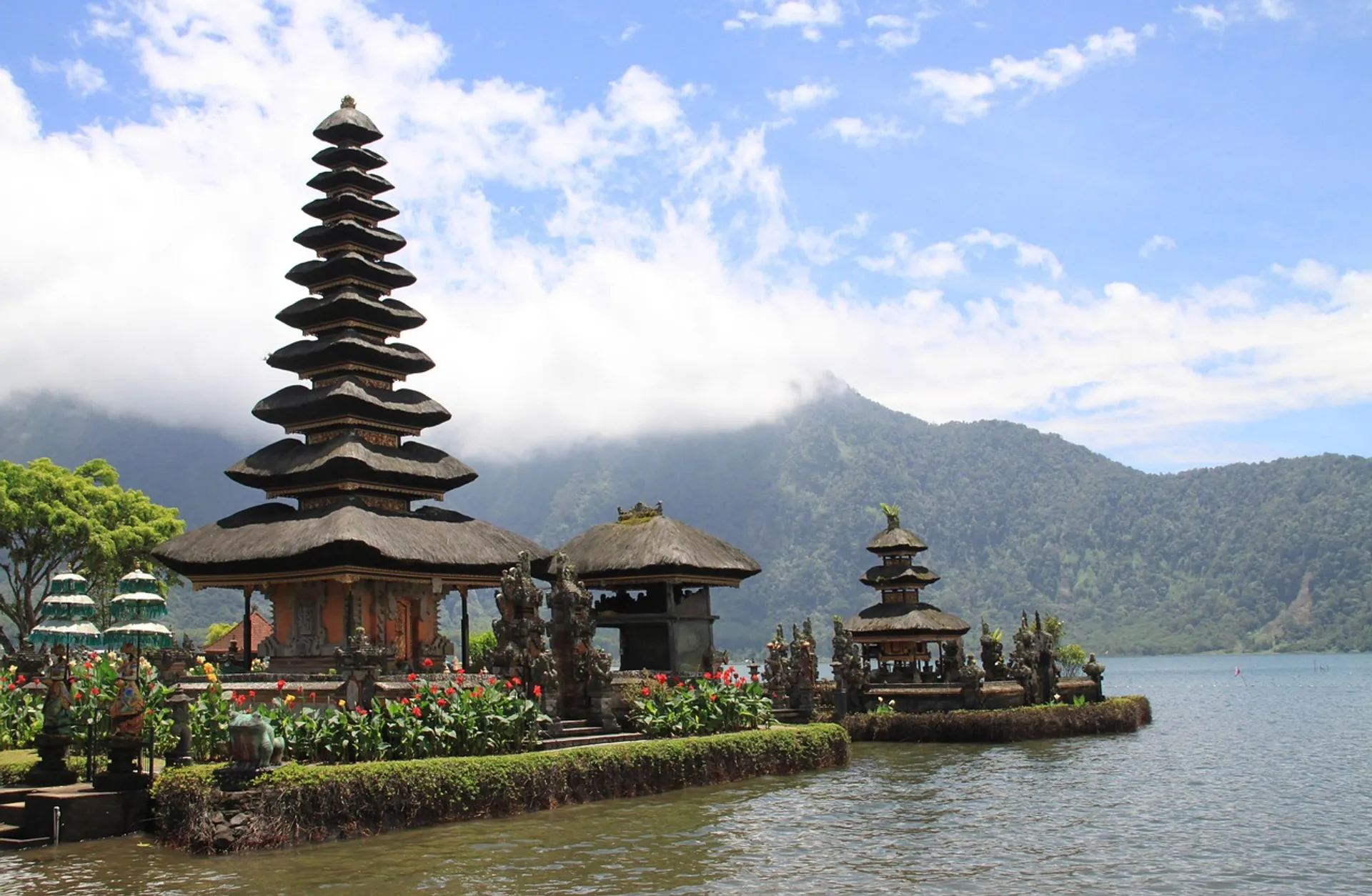
Your Complete Guide to Bali & Indonesia Visas: Indonesia Visa Exemption Countries, Indonesia Visa required countries and full details about Bali Visa
For countless travelers, Bali represents the quintessential tropical escape - a vibrant tapestry of culture, breathtaking landscapes, and profound spiritual tranquility. Yet, before embarking on this journey, a clear understanding of the Indonesia visa and Bali visa requirements is essential. This comprehensive guide, brought to you by the expert team at Visa Centre Au, serves as an authoritative resource for anyone planning a trip, providing a detailed breakdown of the entry pathways, the application process, financial considerations, and practical tips to ensure a seamless experience. The information herein is based on official government regulations and addresses the most common questions from first-time visitors and seasoned travelers alike.
Part I: Understanding the Bali Visa Landscape: The Three Main Pathways to Paradise
A traveler's specific visa requirements for entry into Indonesia are not one-size-fits-all. They are primarily determined by three critical factors: their nationality, the planned duration of their stay, and the explicit purpose of their visit. At Visa Centre Au, we help you navigate these options, which can be simplified into three primary pathways, each with distinct rules and limitations. Navigating these options correctly is the first and most important step in the pre-travel planning process.
Pathway 1: Visa-Free Entry (The Short-Stay Tourist Visa)
The most direct route for a select group of nationalities is the visa-free entry option. This pathway is a gesture of diplomatic goodwill and is typically non-reciprocal. It is available to citizens of all ASEAN member states, as well as Suriname, Hong Kong, and Colombia, among others.
This entry is intended for short-term tourism, family visits, or business talks. The key condition is a maximum stay of 30 days, which is inclusive of the arrival and departure dates. It is a single-entry permission, meaning it is valid only for a single visit to the country. A fundamental aspect of this visa-free entry, which is often misunderstood, is that it is strictly not extendable. Travelers who decide they want to stay longer than 30 days cannot extend their stay and must depart Indonesia. For this reason, those who are uncertain about their travel duration and may wish to extend their trip often opt for the Visa on Arrival, which offers a built-in extension option.
Pathway 2: The Visa on Arrival (VoA / e-VoA)
The Visa on Arrival, or VoA, is the most popular choice for the majority of international visitors to Bali. It is a single-entry visa valid for an initial stay of up to 30 days. Its main advantage is the ability to be extended once for an additional 30 days, allowing for a total continuous stay of 60 days in Indonesia. This type of visa is widely available to citizens of over 80 countries. While a full list is best verified on the official Indonesian immigration website, it includes nations from the European Union, the Americas, and parts of Asia and the Pacific. The VoA is permissible for activities such as tourism, government visits, business meetings, and transit. It is crucial to note that it does not permit employment or any other type of profit-making activity.
A critical development in Indonesia's visa policy has been the introduction of the electronic Visa on Arrival, or e-VoA. The e-VoA is not a different type of visa; rather, it is the same Visa on Arrival, but with the added convenience of being applied for and processed online before arrival. This pre-arrival application allows travelers to bypass the often lengthy queues at the visa counter in the airport's arrival hall. The e-VoA streamlines the entry process, permitting travelers to proceed directly to the immigration desk upon landing, which can save a significant amount of time and is a highly recommended option for a more efficient arrival.
Pathway 3: The Single-Entry Tourist Visa (B211A/C1 Visa)
For travelers planning a more extended stay, or for those whose nationality does not qualify for the VoA, the Single-Entry Tourist Visa, or B211A/C1 Visa, is the standard option. This visa grants an initial stay of 60 days and, unlike the VoA, can be extended twice, each time for an additional 60 days. This allows a traveler to remain in Indonesia for a maximum of 180 consecutive days without leaving the country.
A defining characteristic of the B211A/C1 Visa is the requirement for a local sponsor. This sponsorship requirement is why many travelers enlist the help of a reputable visa agent, as they can act as the official sponsor, thereby simplifying the application process significantly. This visa must be applied for and approved before traveling to Indonesia, either online or through an Indonesian embassy or consulate in the traveler's home country.
A quick summary of the main visa types is provided in the table below for easy reference.
| Visa Type | Duration | Extendable? | Max Stay | Application Method | Sponsorship |
| Visa-Free | 30 days | No | 30 days | On Arrival | No |
| VOA / e-VoA | 30 days | Yes (once) | 60 days | On Arrival / Online | No |
| B211A/C1 Visa | 60 days | Yes (twice) | 180 days | Online / Embassy | Yes |
Part II: Step-by-Step Application Process & Required Documents
Navigating the application process for an Indonesia visa requires meticulous attention to detail and a thorough understanding of the necessary documentation. The process varies depending on the visa type, with the e-VoA being the most straightforward option for most travelers.
The Easiest Route: Getting Your e-VoA Online
The e-VoA application is processed through the official Indonesian government portal, https://evisa.imigrasi.go.id/, which streamlines the entire process from submission to payment and issuance. To successfully apply for an e-VoA, a traveler must prepare the following documents and information in advance:
- A Valid Passport: The passport must be valid for at least 6 months from the date of arrival in Indonesia and must have at least two blank pages for entry stamps.
- A Recent Passport Photo: A clear, recent color photograph is required.
- Proof of Onward Travel: This can be a confirmed return flight ticket or a ticket to continue the journey to another country. Immigration officials reserve the right to request proof of your departure from Indonesia.
- Proof of Accommodation: While not always requested, it is prudent to have a copy of a hotel or villa reservation as proof of stay.
Applying for the B211A/C1 Visa: The Pre-Arrival Process
The application for a B211A/C1 Visa is a more involved process due to the sponsorship requirement. It must be completed prior to arriving in Indonesia. The required documents for this visa include a passport valid for at least six months and a recent passport-sized photograph. A crucial and often overlooked requirement is proof of sufficient funds to support the stay. The official government recommendation is a personal bank statement showing a minimum of US$2,000 or an equivalent amount in another currency. This demonstrates the traveler's financial self-sufficiency and is a key factor in the visa's approval. Our team at Visa Centre Au can assist in ensuring all documentation is prepared correctly and can also act as your official sponsor.
Part III: The Full Financial Breakdown: Fees, Levies, and Fines
Understanding all the financial obligations for a trip to Bali goes beyond the visa fee itself. A traveler's budget should account for the visa cost, a new tourist levy, and potential penalties for non-compliance.
Bali Visa Costs Explained: VOA vs. B211A/C1 Visa
The official government fee for a Visa on Arrival (VoA) is consistently set at IDR 500,000. However, travelers may encounter different prices when using third-party services. Some travel guides and websites quote a higher fee, such as IDR 850,000 or IDR 730,000. This discrepancy is not a contradiction in government policy but rather reflects the additional fees charged by official visa partners like VFS Global (IDR 230,000) or other private visa agencies for their services. These services provide convenience and simplify the process for the traveler.
The official cost for a 60-day B211A/C1 Visa is IDR 1,500,000. As with the VoA, fees can fluctuate, and it is always advisable to verify the most current pricing on the official Indonesian immigration website.
A New Requirement: The Bali Tourist Levy
In addition to the visa fee, all foreign tourists arriving in Bali must pay a mandatory tourist levy of IDR 150,000. This one-time, cashless tax is designated for the protection and preservation of Bali's culture and natural environment. The levy is a separate charge from the visa fee and can be paid electronically before arrival using the official
https://lovebali.baliprov.go.id/ system or at payment counters available at the airport.
The High Cost of Overstaying: Fines, Deportation, and Bans
Adhering to the permitted length of stay is critical to avoid severe penalties. Overstaying a visa in Indonesia results in a substantial fine of IDR 1,000,000 for every day the visa holder remains in the country beyond their authorized stay. Beyond the financial penalty, overstaying can lead to serious legal consequences, including detention, deportation, and a potential ban on future travel to Indonesia. A government warning also specifies that using an inappropriate visa class—for instance, conducting business on a tourist visa—can result in similar fines and deportation, underscoring the importance of selecting the correct visa for the purpose of the trip.
| Fee/Fine Name | Official Fee | Notes |
| VoA / e-VoA | IDR 500,000 | Third-party service fees may apply. |
| VOA Extension | IDR 500,000 | A single, 30-day extension is permitted. |
| B211A/C1 Visa | IDR 1,500,000 | Can be extended twice for a total of 180 days. |
| Bali Tourist Levy | IDR 150,000 | Mandatory, one-time cashless payment. |
| Overstay Fine | IDR 1,000,000 per day | Leads to deportation and potential re-entry ban. |
Part IV: Extending Your Bali Stay: A Comprehensive Guide
Many travelers find themselves captivated by Bali and wish to prolong their stay. The process for a visa extension in Bali is well-defined but requires careful planning and adherence to a specific protocol.
Extending Your Visa on Arrival (VoA)
A Visa on Arrival can be extended only once for an additional 30-day period, bringing the total permitted stay to a maximum of 60 days. While the initial e-VoA application is digital, the extension process requires an in-person visit to a local immigration office.
This in-person requirement is a key distinction. Some online sources may suggest a fully digital extension process. However, a physical visit is mandatory for the collection of biometrics, which includes taking a photograph and fingerprints. Typically, a traveler or their agent will submit the required documents online or at the immigration office and then return for the biometric appointment before returning a third time to pick up the passport with the new visa stamp. Using a reputable visa agency like ours can significantly streamline this process, as we can manage the paperwork and multiple visits, leaving you to attend only the single mandatory biometric appointment.
Extending a B211A/C1 Visa
The B211A/C1 Visa offers greater flexibility for long-term stays. It can be extended twice, with each extension granting an additional 60 days. The process requires the continued involvement of the local sponsor who assisted with the initial visa application. The extensions must be applied for at an immigration office well in advance of the visa's expiration date to avoid overstay penalties.
Part V: Country-Specific Visa Requirements & Long-Term Options
While many nationalities have straightforward access to Bali, some must navigate a more complex application process. This section provides a comprehensive list of countries and their visa requirements to enter Indonesia, as provided by our partners.
| Country | Visa Requirement |
| Afghanistan | Special Calling Visa needed |
| Albania | 30 days Visa on Arrival |
| Algeria | B211A/C1 Visa Visit Visa |
| Andorra | 30 days Visa on Arrival |
| Angola | B211A/C1 Visa Visit Visa |
| Antigua and Barbuda | B211A/C1 Visa Visit Visa |
| Argentina | 30 days Visa on Arrival |
| Armenia | 30 days Visa on Arrival |
| Australia | 30 days Visa on Arrival |
| Austria | 30 days Visa on Arrival |
| Azerbaijan | 30 days Visa on Arrival |
| Bahamas | B211A/C1 Visa Visit Visa |
| Bahrain | 30 days Visa on Arrival |
| Bangladesh | B211A/C1 Visa Visit Visa |
| Barbados | B211A/C1 Visa Visit Visa |
| Belarus | 30 days Visa on Arrival |
| Belgium | 30 days Visa on Arrival |
| Belize | B211A/C1 Visa Visit Visa |
| Benin | B211A/C1 Visa Visit Visa |
| Bhutan | B211A/C1 Visa Visit Visa |
| Bolivia | B211A/C1 Visa Visit Visa |
| Bosnia Herzegovina | 30 days Visa on Arrival |
| Botswana | B211A/C1 Visa Visit Visa |
| Brazil | 30 days Visa on Arrival |
| Brunei | Visa Exemption & Visa on Arrival |
| Bulgaria | 30 days Visa on Arrival |
| Burkina Faso | B211A/C1 Visa Visit Visa |
| Burundi | B211A/C1 Visa Visit Visa |
| Cabo Verde (Cape Verde) | B211A/C1 Visa Visit Visa |
| Cambodia | Visa Exemption & Visa on Arrival |
| Cameroon | B211A/C1 Visa Visit Visa |
| Canada | 30 days Visa on Arrival |
| Cayman Islands | B211A/C1 Visa Visit Visa |
| Central African Republic | B211A/C1 Visa Visit Visa |
| Chad | B211A/C1 Visa Visit Visa |
| Chile | 30 days Visa on Arrival |
| China | 30 days Visa on Arrival |
| Colombia | Visa Exemption & Visa on Arrival |
| Comoros | B211A/C1 Visa Visit Visa |
| Democratic Republic of the CONGO | B211A/C1 Visa Visit Visa |
| Republic of the CONGO | B211A/C1 Visa Visit Visa |
| Costa Rica | B211A/C1 Visa Visit Visa |
| Ivory Coast (Cote d'Ivoire) | B211A/C1 Visa Visit Visa |
| Croatia | 30 days Visa on Arrival |
| Cuba | B211A/C1 Visa Visit Visa |
| Cyprus | 30 days Visa on Arrival |
| Czech Republic | 30 days Visa on Arrival |
| Denmark | 30 days Visa on Arrival |
| Djibouti | B211A/C1 Visa Visit Visa |
| Dominica | B211A/C1 Visa Visit Visa |
| Dominican Republic | B211A/C1 Visa Visit Visa |
| Ecuador | 30 days Visa on Arrival |
| Egypt | 30 days Visa on Arrival |
| El Salvador | B211A/C1 Visa Visit Visa |
| Equatorial Guinea | B211A/C1 Visa Visit Visa |
| Eritrea | B211A/C1 Visa Visit Visa |
| Estonia | 30 days Visa on Arrival |
| Eswatini | B211A/C1 Visa Visit Visa |
| Ethiopia | B211A/C1 Visa Visit Visa |
| Fiji | B211A/C1 Visa Visit Visa |
| Finland | 30 days Visa on Arrival |
| France | 30 days Visa on Arrival |
| Gabon | B211A/C1 Visa Visit Visa |
| Gambia | B211A/C1 Visa Visit Visa |
| Georgia | B211A/C1 Visa Visit Visa |
| Germany | 30 days Visa on Arrival |
| Ghana | B211A/C1 Visa Visit Visa |
| Greece | 30 days Visa on Arrival |
| Grenada | B211A/C1 Visa Visit Visa |
| Guatemala | 30 days Visa on Arrival |
| Guinea | B211A/C1 Visa Visit Visa |
| Guinea-Bissau | B211A/C1 Visa Visit Visa |
| Guyana | B211A/C1 Visa Visit Visa |
| Haiti | B211A/C1 Visa Visit Visa |
| Honduras | B211A/C1 Visa Visit Visa |
| Hong Kong | Visa Exemption & Visa on Arrival |
| Hungary | 30 days Visa on Arrival |
| Iceland | 30 days Visa on Arrival |
| India | 30 days Visa on Arrival |
| Indonesia | Domestic traveller |
| Iran | B211A/C1 Visa Visit Visa |
| Iraq | B211A/C1 Visa Visit Visa |
| Ireland | 30 days Visa on Arrival |
| Israel | Travel Restrictions |
| Italy | 30 days Visa on Arrival |
| Jamaica | B211A/C1 Visa Visit Visa |
| Japan | 30 days Visa on Arrival |
| Jordan | 30 days Visa on Arrival |
| Kazakhstan | 30 days Visa on Arrival |
| Kenya | 30 days Visa on Arrival |
| Kiribati | B211A/C1 Visa Visit Visa |
| Kosovo | No Visa available at the moment |
| Kuwait | 30 days Visa on Arrival |
| Kyrgyzstan | B211A/C1 Visa Visit Visa |
| Laos | Visa Exemption & Visa on Arrival |
| Latvia | 30 days Visa on Arrival |
| Lebanon | B211A/C1 Visa Visit Visa |
| Lesotho | B211A/C1 Visa Visit Visa |
| Liberia | Special Calling Visa needed |
| Libya | B211A/C1 Visa Visit Visa |
| Liechtenstein | 30 days Visa on Arrival |
| Lithuania | 30 days Visa on Arrival |
| Luxembourg | 30 days Visa on Arrival |
| Macau | B211A/C1 Visa Visit Visa |
| Madagascar | B211A/C1 Visa Visit Visa |
| Malawi | B211A/C1 Visa Visit Visa |
| Malaysia | Visa Exemption & Visa on Arrival |
| Maldives | 30 days Visa on Arrival |
| Mali | B211A/C1 Visa Visit Visa |
| Malta | 30 days Visa on Arrival |
| Marshall Islands | B211A/C1 Visa Visit Visa |
| Mauritania | B211A/C1 Visa Visit Visa |
| Mauritius | 30 days Visa on Arrival |
| Mexico | 30 days Visa on Arrival |
| Micronesia | B211A/C1 Visa Visit Visa |
| Moldova | B211A/C1 Visa Visit Visa |
| Monaco | 30 days Visa on Arrival |
| Mongolia | 30 days Visa on Arrival |
| Montenegro | B211A/C1 Visa Visit Visa |
| Morocco | 30 days Visa on Arrival |
| Mozambique | 30 days Visa on Arrival |
| Myanmar | Visa Exemption & Visa on Arrival |
| Namibia | B211A/C1 Visa Visit Visa |
| Nauru | B211A/C1 Visa Visit Visa |
| Nepal | B211A/C1 Visa Visit Visa |
| Netherlands | 30 days Visa on Arrival |
| New Zealand | 30 days Visa on Arrival |
| Nicaragua | B211A/C1 Visa Visit Visa |
| Niger | B211A/C1 Visa Visit Visa |
| Nigeria | Special Calling Visa needed |
| North Korea | Special Calling Visa needed |
| North Macedonia | B211A/C1 Visa Visit Visa |
| Norway | 30 days Visa on Arrival |
| Oman | 30 days Visa on Arrival |
| Pakistan | B211A/C1 Visa Visit Visa |
| Palau | B211A/C1 Visa Visit Visa |
| Palestine | 30 days Visa on Arrival |
| Panama | B211A/C1 Visa Visit Visa |
| Papua New Guinea | 30 days Visa on Arrival |
| Paraguay | B211A/C1 Visa Visit Visa |
| Peru | 30 days Visa on Arrival |
| Philippines | Visa Exemption & Visa on Arrival |
| Poland | 30 days Visa on Arrival |
| Portugal | 30 days Visa on Arrival |
| Qatar | 30 days Visa on Arrival |
| Romania | 30 days Visa on Arrival |
| Russia | 30 days Visa on Arrival |
| Rwanda | 30 days Visa on Arrival |
| Saint Kitts and Nevis | B211A/C1 Visa Visit Visa |
| Saint Lucia | B211A/C1 Visa Visit Visa |
| Saint Vincent and the Grenadines | B211A/C1 Visa Visit Visa |
| Samoa | B211A/C1 Visa Visit Visa |
| San Marino | B211A/C1 Visa Visit Visa |
| Sao Tome and Principe | B211A/C1 Visa Visit Visa |
| Saudi Arabia | 30 days Visa on Arrival |
| Senegal | B211A/C1 Visa Visit Visa |
| Serbia | 30 days Visa on Arrival |
| Seychelles | 30 days Visa on Arrival |
| Sierra Leone | B211A/C1 Visa Visit Visa |
| Singapore | Visa Exemption & Visa on Arrival |
| Slovakia | 30 days Visa on Arrival |
| Slovenia | 30 days Visa on Arrival |
| Solomon Islands | B211A/C1 Visa Visit Visa |
| Somalia | Special Calling Visa needed |
| South Africa | 30 days Visa on Arrival |
| South Korea | 30 days Visa on Arrival |
| South Sudan | B211A/C1 Visa Visit Visa |
| Spain | 30 days Visa on Arrival |
| Sri Lanka | B211A/C1 Visa Visit Visa |
| Sudan | B211A/C1 Visa Visit Visa |
| Suriname | Visa Exemption & Visa on Arrival |
| Sweden | 30 days Visa on Arrival |
| Switzerland | 30 days Visa on Arrival |
| Syria | B211A/C1 Visa Visit Visa |
| Taiwan | 30 days Visa on Arrival |
| Tajikistan | B211A/C1 Visa Visit Visa |
| Tanzania | Visit Visa / Visa on Arrival |
| Thailand | Visa Exemption or Visa on Arrival |
| Timor-Leste | Visa Exemption or Visa on Arrival |
| Togo | B211A/C1 Visa Visit Visa |
| Tonga | B211A/C1 Visa Visit Visa |
| Trinidad and Tobago | B211A/C1 Visa Visit Visa |
| Tunisia | 30 days Visa on Arrival |
| Turkey | 30 days Visa on Arrival |
| Turkmenistan | B211A/C1 Visa Visit Visa |
| Tuvalu | B211A/C1 Visa Visit Visa |
| Uganda | B211A/C1 Visa Visit Visa |
| Ukraine | 30 days Visa on Arrival |
| United Arab Emirates (UAE) | 30 days Visa on Arrival |
| United Kingdom (UK) | 30 days Visa on Arrival |
| United States of America (USA) | 30 days Visa on Arrival |
| Uruguay | B211A/C1 Visa Visit Visa |
| Uzbekistan | 30 days Visa on Arrival |
| Vanuatu | B211A/C1 Visa Visit Visa |
| Vatican City | 30 days Visa on Arrival |
| Venezuela | 30 days Visa on Arrival |
| Vietnam | Visa Exemption & Visa on Arrival |
| Yemen | B211A/C1 Visa Visit Visa |
| Zambia | B211A/C1 Visa Visit Visa |
| Zimbabwe | B211A/C1 Visa Visit Visa |
Part VI: Expert Travel Tips & Troubleshooting
Navigating the intricacies of international travel can be stressful. A final set of expert tips from our team at Visa Centre Au can help ensure the process is as smooth as possible.
The Ultimate Pre-Travel Checklist
Before heading to the airport, it is crucial to have all necessary documents ready:
- A passport valid for at least six months from the date of arrival.
- A confirmed return or onward flight ticket.
- A printed copy of your e-VoA (if you applied online) or your B211A/C1 Visa.
- Proof of hotel or accommodation bookings.
- Proof of sufficient funds (especially for B211A/C1 Visa holders).
- A printed copy of your Bali Tourist Levy payment confirmation.
It is highly recommended to have both physical and digital copies of all important documents, including your passport's main page and visa pages, stored on a phone or cloud service for easy access.
Troubleshooting Common Visa Application Issues
If a traveler encounters problems with their online e-VoA application, there are several common solutions. If a payment fails, the individual should ensure their credit or debit card is enabled for international transactions and consider using a different card or contacting their bank. For website-related issues, clearing the browser's cache or using a different browser can often resolve the problem. It is important to remember that if an applicant submits incorrect information, they will need to file a new application, and the original payment will not be refunded. A reassuring alternative is that even if the e-VoA application fails, travelers from eligible countries can still obtain a traditional Visa on Arrival at the airport by paying the fee at the visa counter.
Identifying and Avoiding Visa Scams
The Indonesian government has issued warnings about the proliferation of fraudulent visa agents who may take a traveler's money but fail to provide the correct visa or extension. To avoid these scams, it is paramount to use only the official government portal,https://evisa.imigrasi.go.id/, for visa applications. When using a third-party service, it is advisable to choose a well-established, reputable agency with a physical office and a strong track record of success.
Official Resources & Contact Information
For the most accurate and up-to-date information, travelers should consult the official Indonesian Immigration website, https://www.imigrasi.go.id/en/. For specific questions, the official Indonesian visa issuance support desk can be reached via email at
[email protected] or by live chat on their website.
Part VII: Frequently Asked Questions
1. Is it possible to travel to Indonesia without a passport?
No, all foreign visitors must hold a valid passport to enter Indonesia. The passport must be valid for at least 6 months beyond the date of arrival and have at least two blank pages.
2. Can I extend my 30-day Visa on Arrival (VoA)?
Yes, the 30-day Visa on Arrival (VoA) can be extended once for an additional 30 days, for a total stay of 60 days.
3. What happens if I overstay my Indonesian visa?
Overstaying your visa in Indonesia results in a fine of IDR 1,000,000 for each day you remain in the country past your authorized stay. Overstaying can also lead to detention, deportation, and a potential ban on re-entering the country in the future.
4. How much does the Visa on Arrival (VoA) cost?
The official fee for a Visa on Arrival is IDR 500,000. However, some third-party services may charge an additional service fee. For example, VFS Global's service fee is IDR 230,000, which is added to the official fee.
5. How long is the processing time for a tourist visa?
Most tourist visas are processed within five working days after the application is submitted. However, the process may take longer if the application is incomplete or missing information.
6. Do I need to book an appointment to extend my visa?
No, you do not need to book an appointment to start the extension process at the immigration office; you can simply walk in during business hours.
7. Can I travel around Indonesia without my passport if it is at the immigration office for a visa extension?
Yes, you can travel anywhere in Indonesia without your physical passport if you have a clear picture of your passport and visa stamps showing your arrival dates. Some visa service providers, like ours, can also provide a statement letter to confirm your passport is with immigration.
Conclusion: Your Stress-Free Journey to Bali Starts Here
The journey to Bali begins long before a traveler boards their flight. A clear understanding of the Indonesia visa and Bali visa regulations is the cornerstone of a smooth and enjoyable trip. By correctly identifying the appropriate visa pathway, preparing the necessary documents, and adhering to all official fees and regulations, a traveler can confidently navigate the entry process. At Visa Centre Au, we are here to support you at every step of this journey, transforming a complex process into a simple, manageable step on the path to a truly unforgettable experience in the heart of Indonesia.